Previous post
Now reading
Top things to see and do in Helsinki, Finland

Overlooking the Baltic Sea, Finland is one of the most underrated countries in Europe. With a unique combination of quirky urbanity and peaceful nature, this is one of the most futuristic places in the world. It is no surprise then that Finland is the happiest country in the world!
Finland’s capital, Helsinki, is an archipelago of 330 islands by the Baltic Sea. Although Helsinki is an exciting destination all year round, winter is a surreal and magical time to visit. Here are my recommendations for the 17 top things to see and do, and why enjoying Finland’s winter landscape should be on your bucket list…
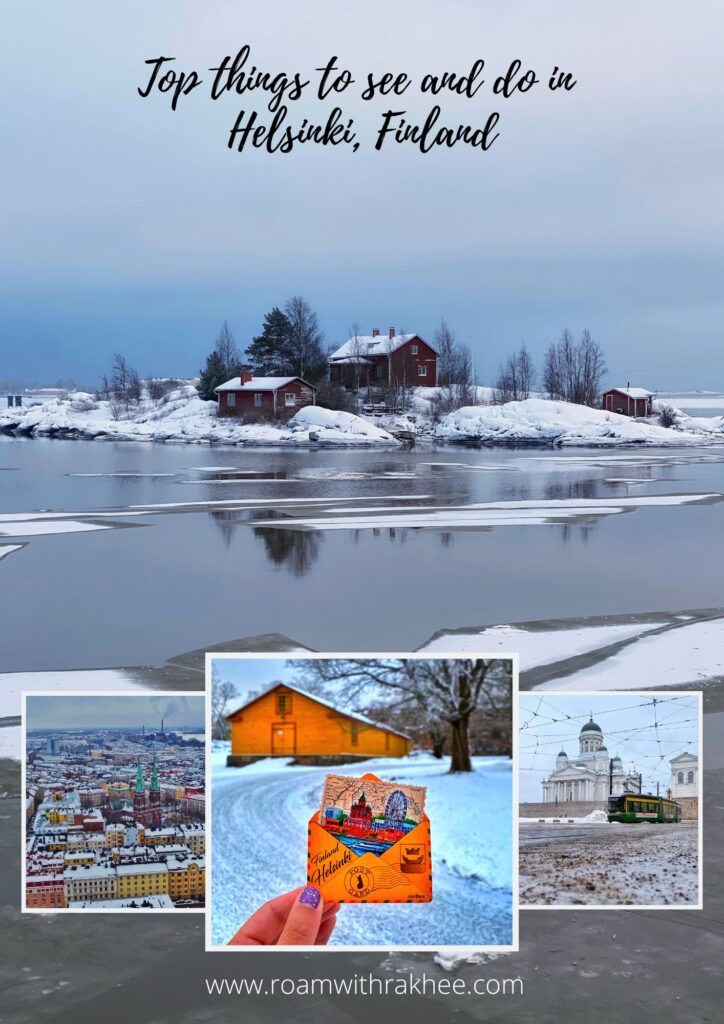

Helsinki Card – your key to exploring Finland’s majestic capital
With the card, you can…
✅ Choose from a 24, 48 or 72 hour pass
✅ Access over 30 attractions, tours and activities
✅ Travel across all transport networks in Helsinki including buses, trams, metro, local trains and the Suomenlinna Ferry
✅ Receive restaurant and shopping discounts
✅ Get a free guidebook to the city
Helsinki Cathedral is Finland’s most famous and photographed building, towering above the rest of the city. It sits proudly in Senate Square. With its white neo-classical architecture, tall green dome and spacious stairways, this is the country’s national icon. Make this the first spot on your visit to Helsinki and be sure to arrive early so you can capture photographs without crowds.
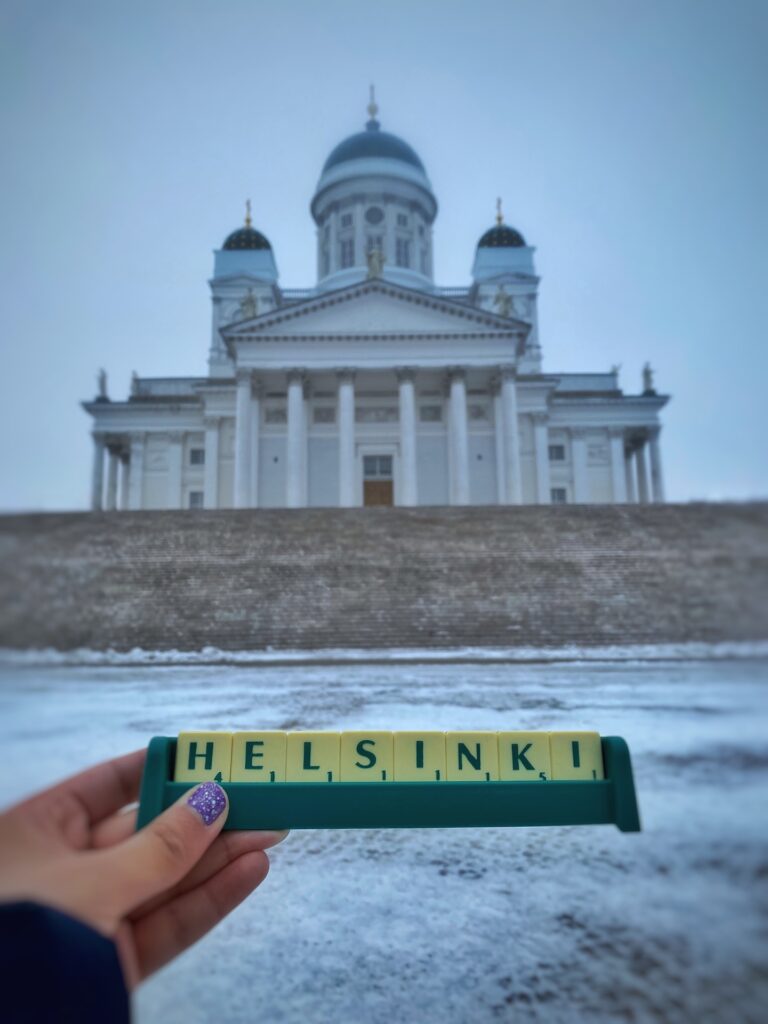
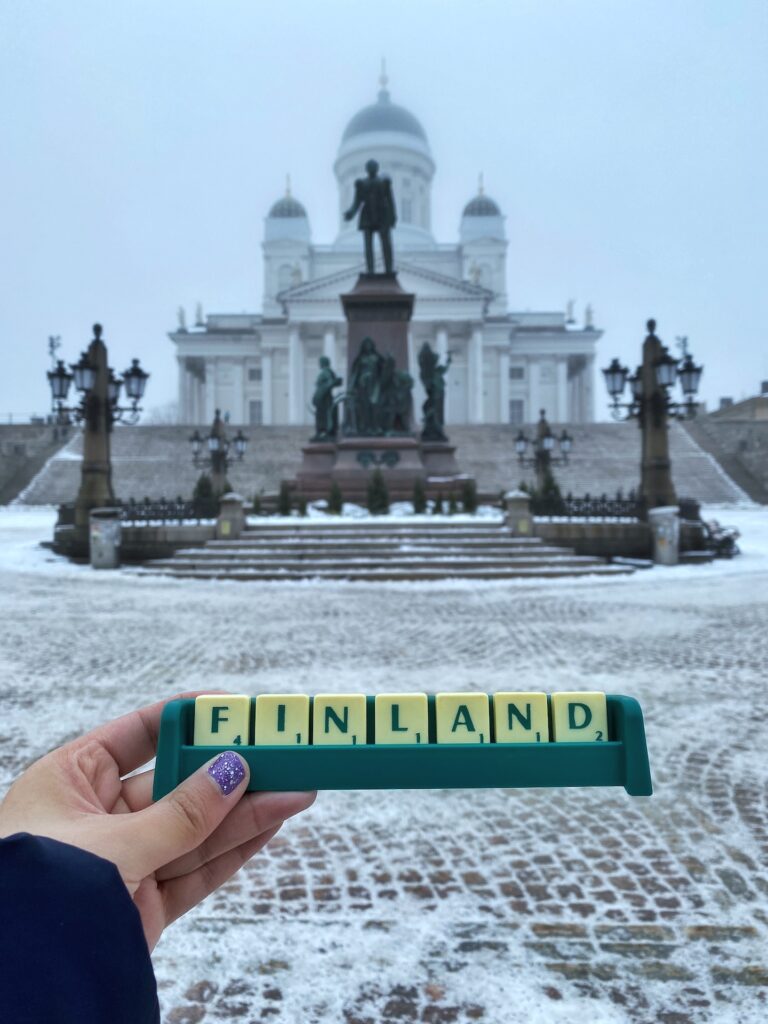
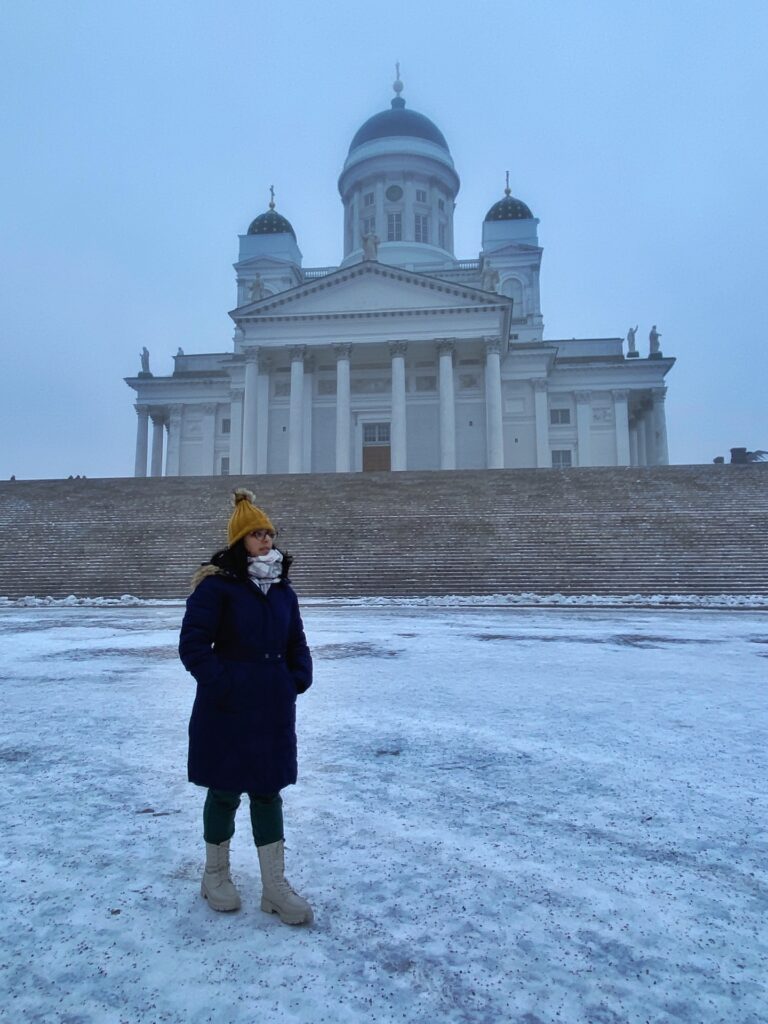
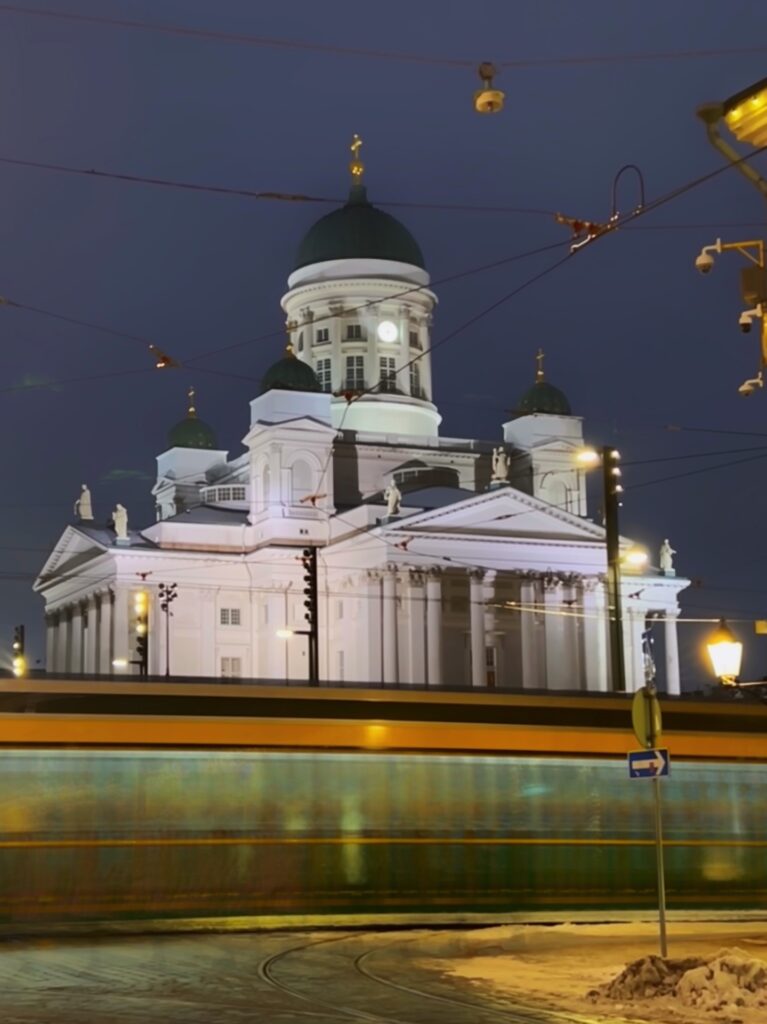
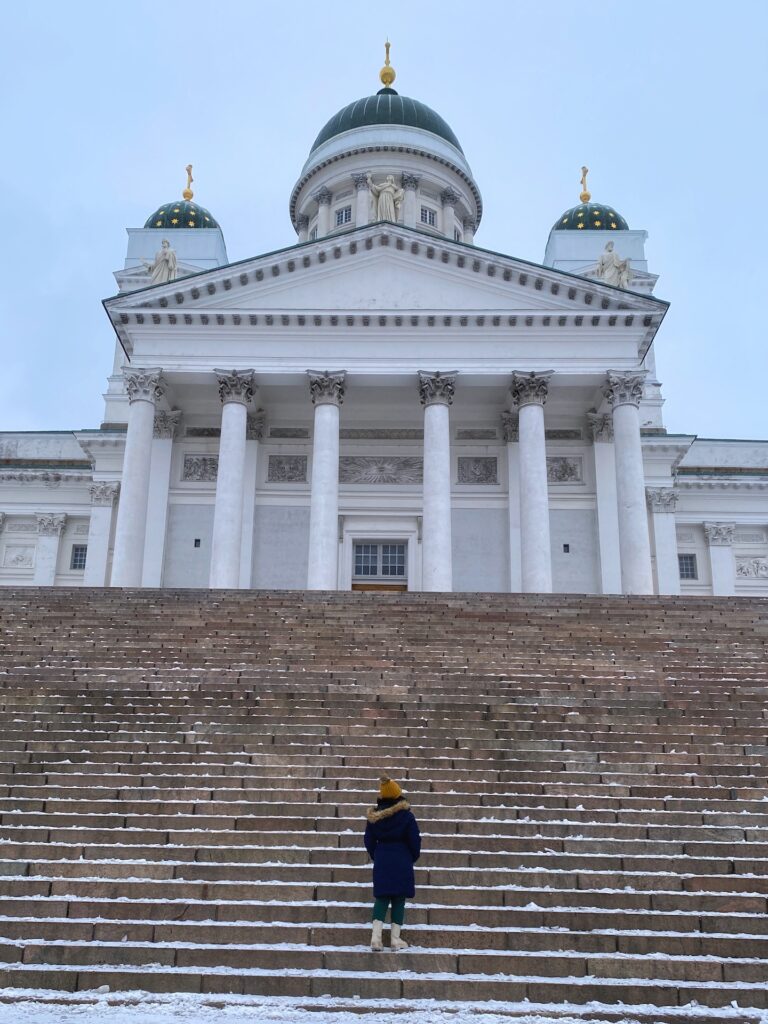
Helsinki Senate Square and its surroundings are perfect examples of Finnish neoclassical architecture.
The square is dominated by four buildings designed by Carl Ludvig Engel (1778-1840): Helsinki Cathedral, the Government Palace, the University of Helsinki and the National Library of Finland. A statue of Alexander II (1894) stands in the middle of the Senate Square.
Senate Square also hosts a sound installation called the ‘Sound of the Senate Square’. It’s a modern version of the European glockenspiel and can be heard each day at 17:49 as it travels from one building to the next. The composition runs for 5 minutes 18 seconds and is composed by Harri Viitanen and Jyrki Alakuijala.
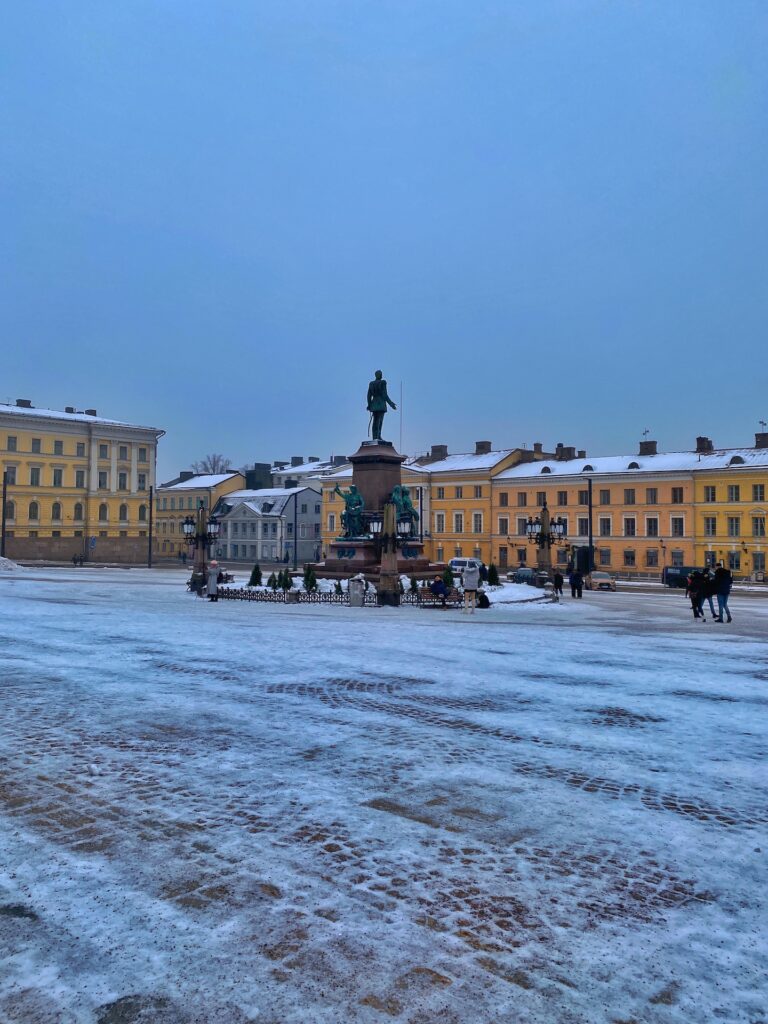
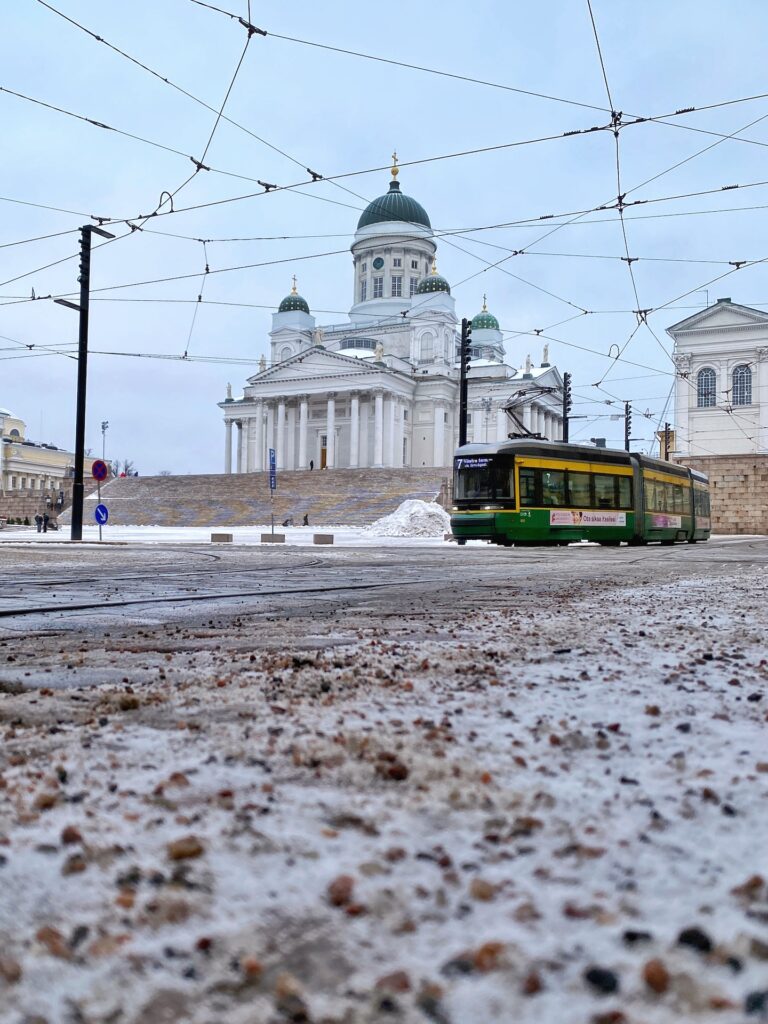
Huvilakatu Street, located in Ullanlinna, is Helsinki’s most Instagrammable street. This is a rainbow street and features a row of beautifully coloured houses, great examples of Art Nouveau design in the city.
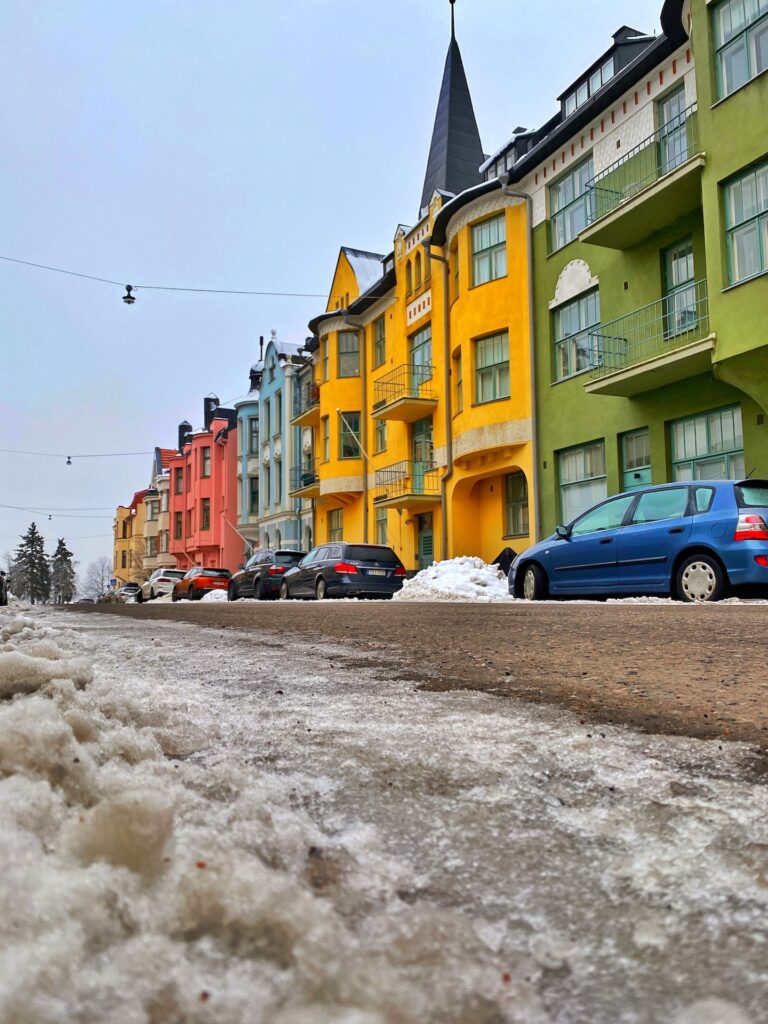


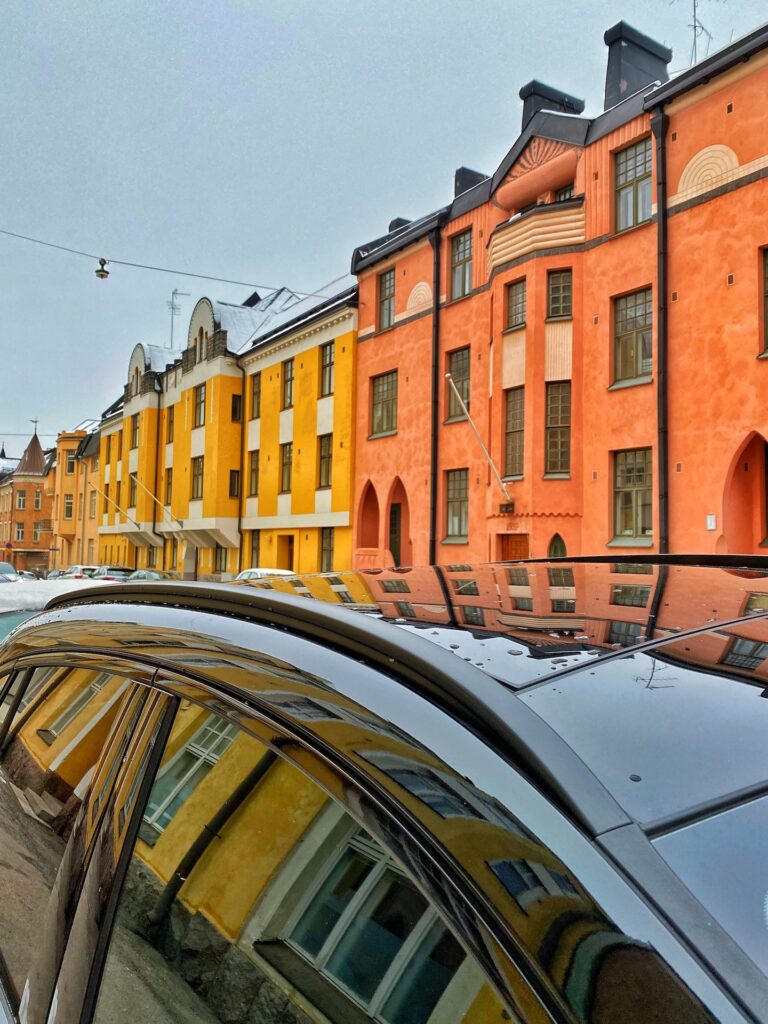
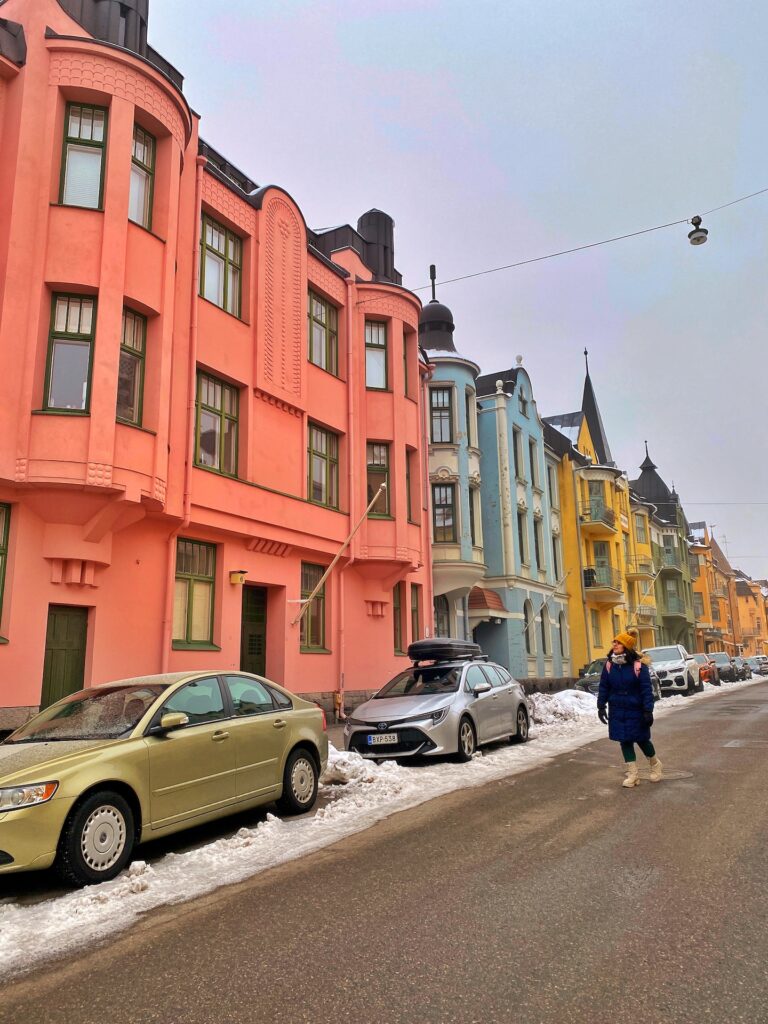
This monument is built after Jean Sibelius’ (1865-1957), a world-famous Finnish composer. It was unveiled to the public in 1967 in what is now known as Sibelius Park. The impressive statue consists of 600 steel organ pipes.


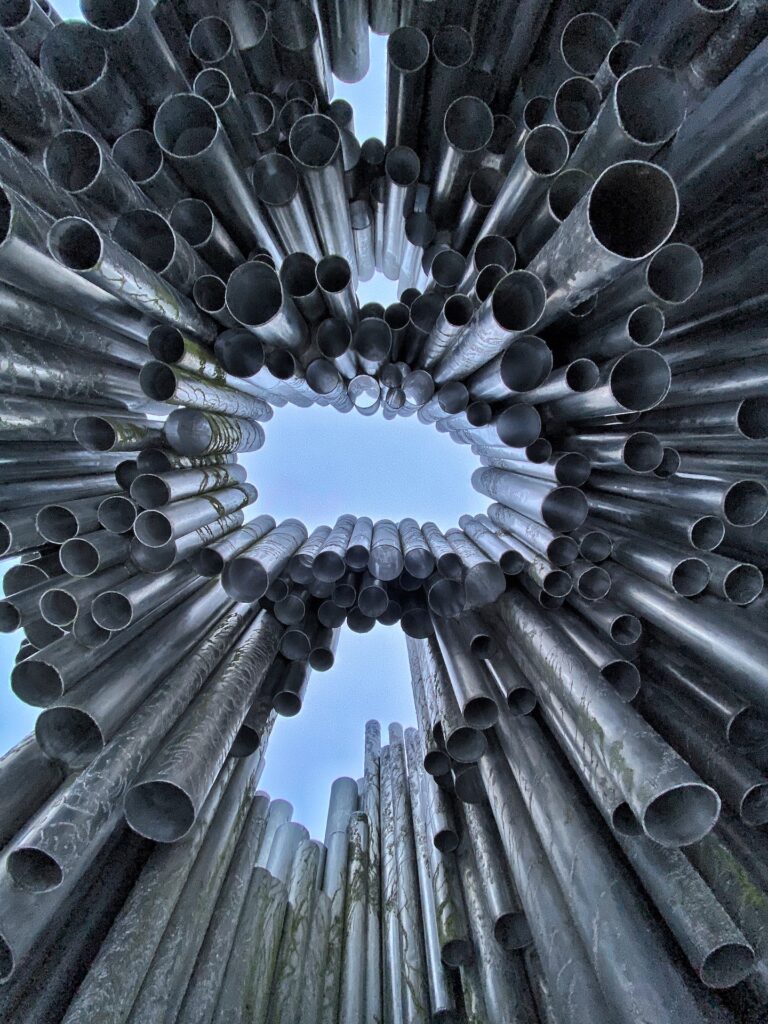
The insta famous Café Regatta looks like it’s been transported straight from Lapland. It opened in 1887 and is located beside a stunning lake, making for a picture-perfect postcard moment.
It’s famous for its filter coffee and cinnamon buns – a cinnamon bun or ‘korvapuustit’ in Finland is like a croissant in France.
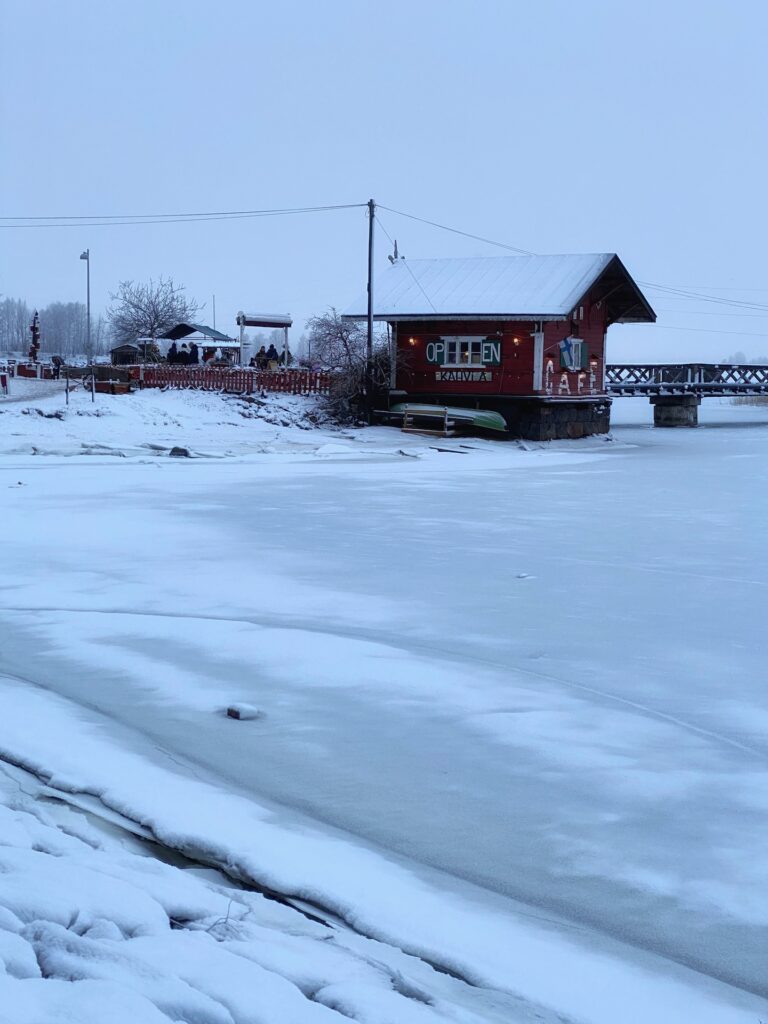

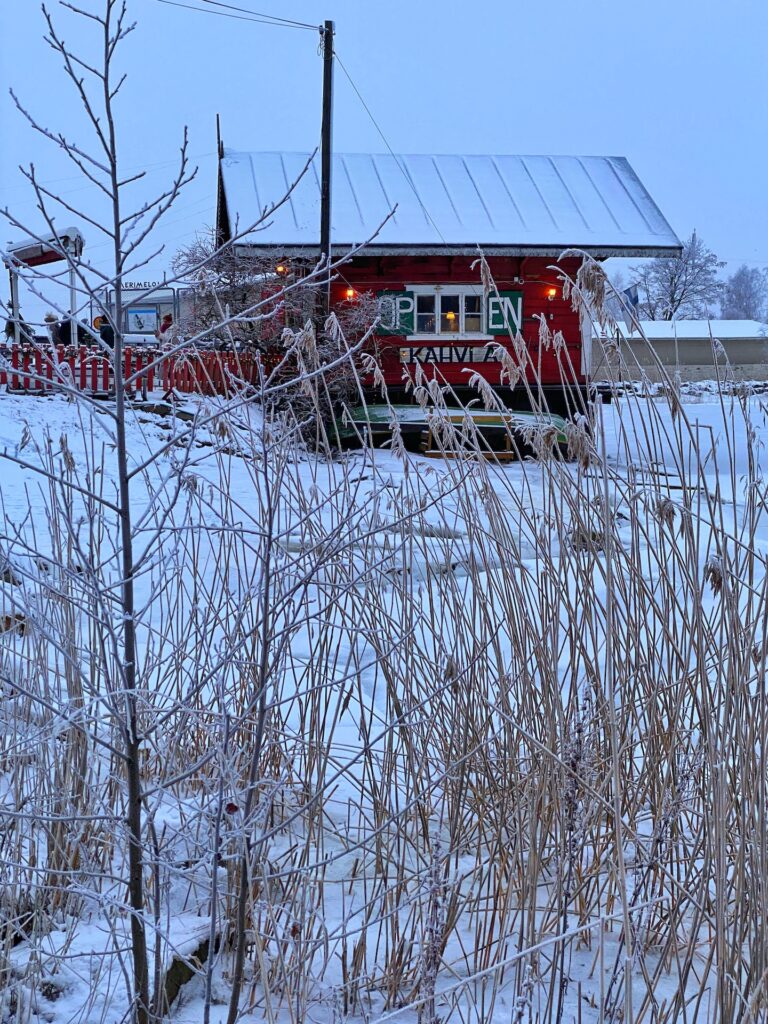

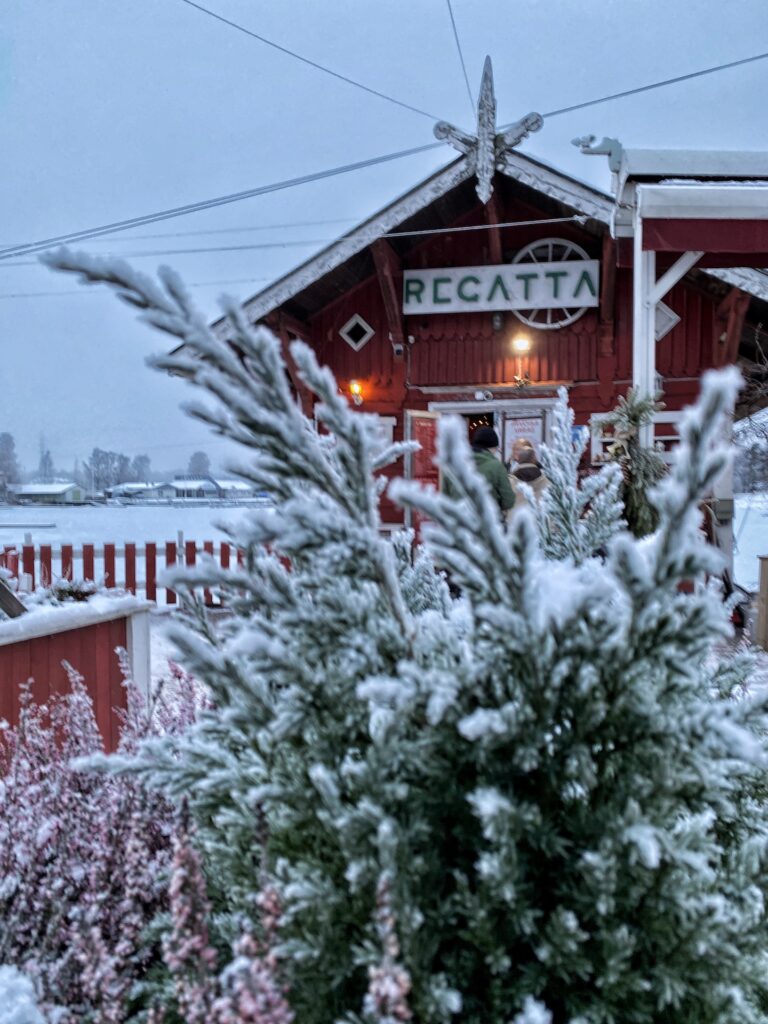
You can hop on board a ferry from Market Square, and in 15 minutes, be transported to Suomenlinna, a magical sea fortress.
It was snowing during my visit, which made for the most stunning ferry ride – sailing through the frozen Baltic Sea was a really unique experience, with the ferries capable of creating a path in the water by breaking through the ice. Although the temperatures were well below freezing, the views were truly worth it…

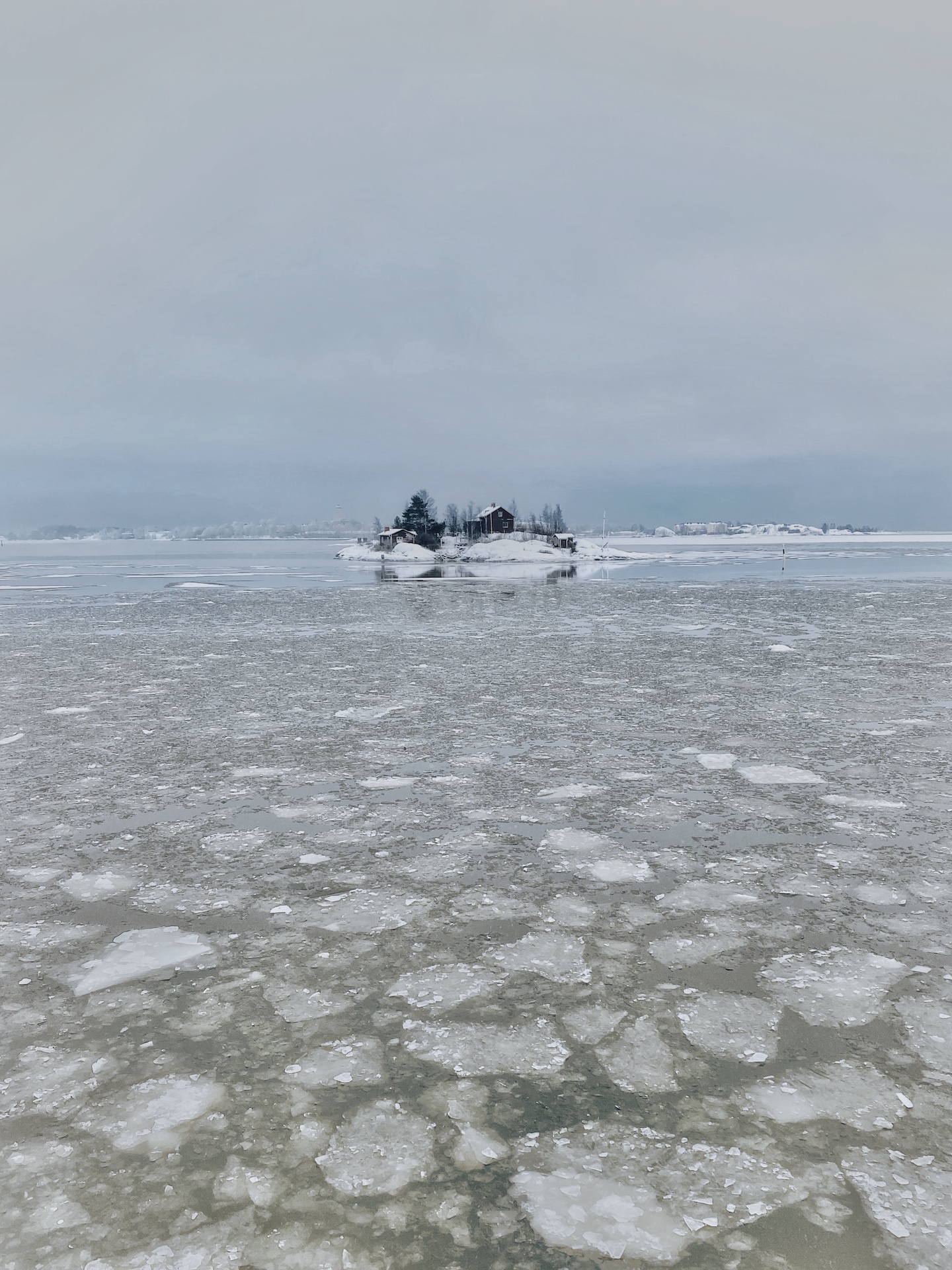
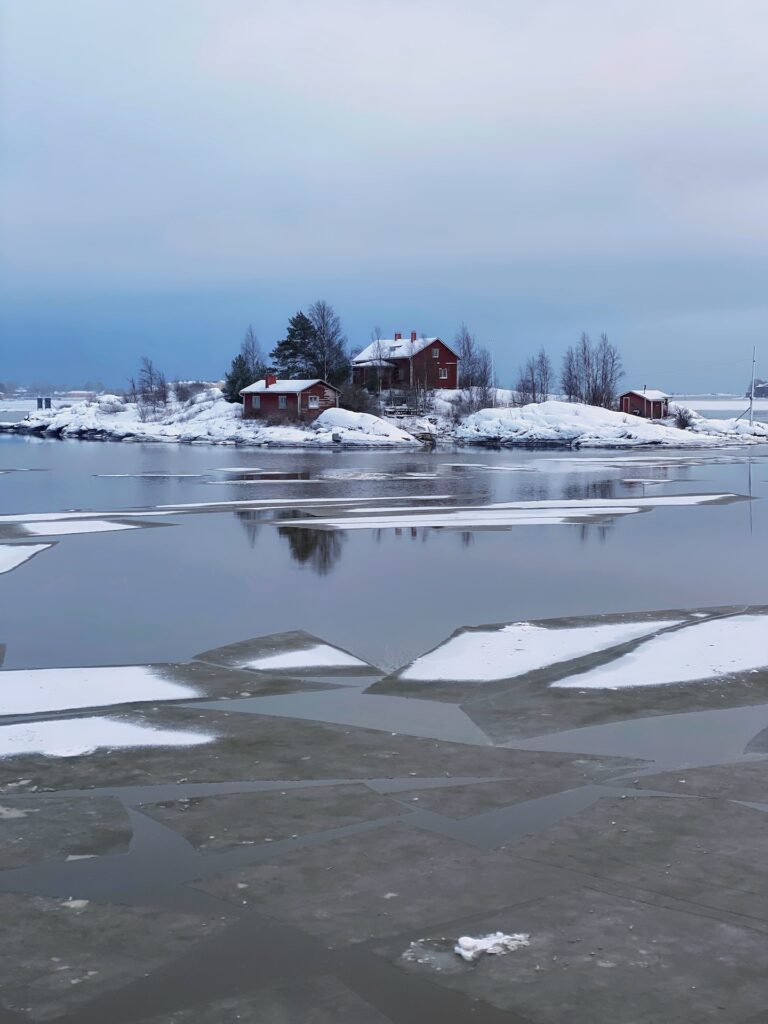
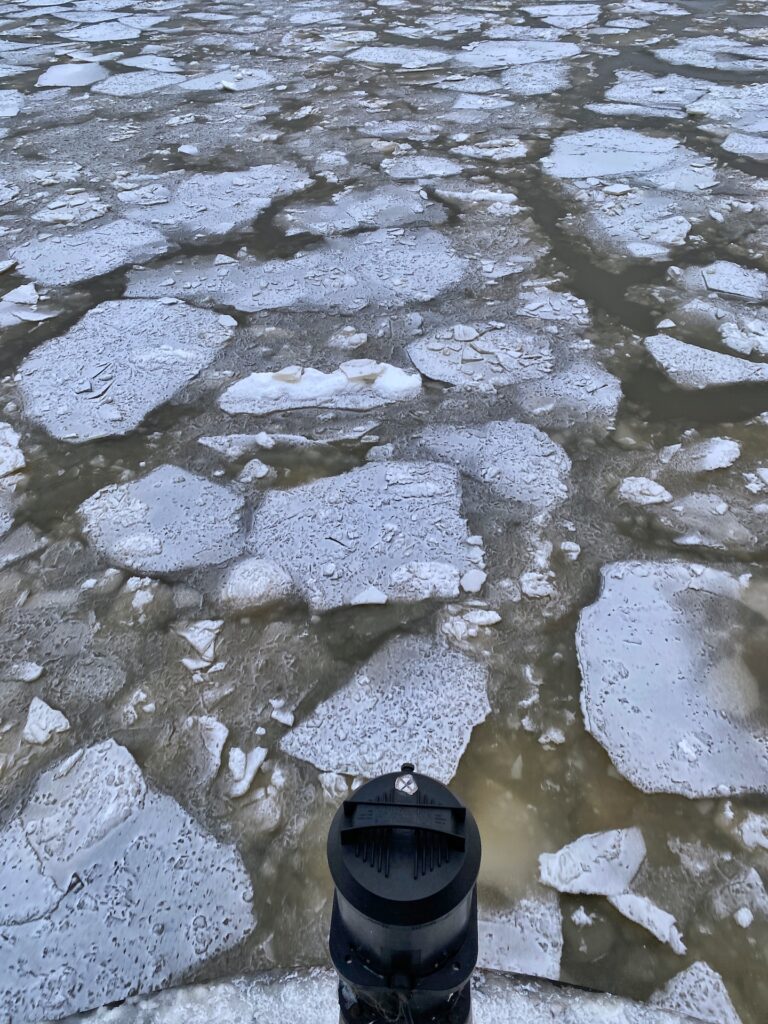
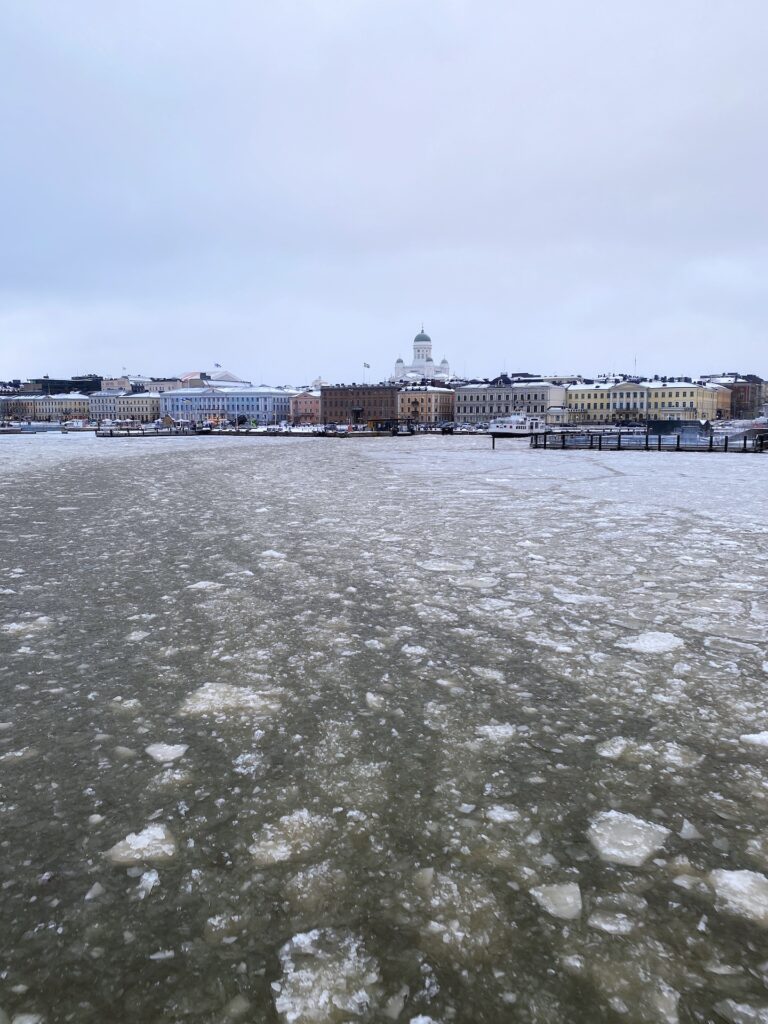
The island was built by the Swedes in the 1700s, in defence against the Russians. This was when Finland was still a part of Sweden. A century later, it was taken over by the Russians, to protect St.Petersburg in Russia. During the Finnish Civil War, in 1918, the fortress was handed to Finland and named ‘Suomenlinna’ or the Castle of Finland. It was added to the UNESCO Word Heritage List in 1991, as a unique monument of military architecture.
Suomenlinna offers interesting perspectives on the naval history of Finland and Northern Europe, along with stunning coastal views and charming architecture. Today, the island has 800 inhabitants, who live in these beautifully-designed houses…
For more, check out this Suomenlinna and Helsinki five-hour sightseeing tour.
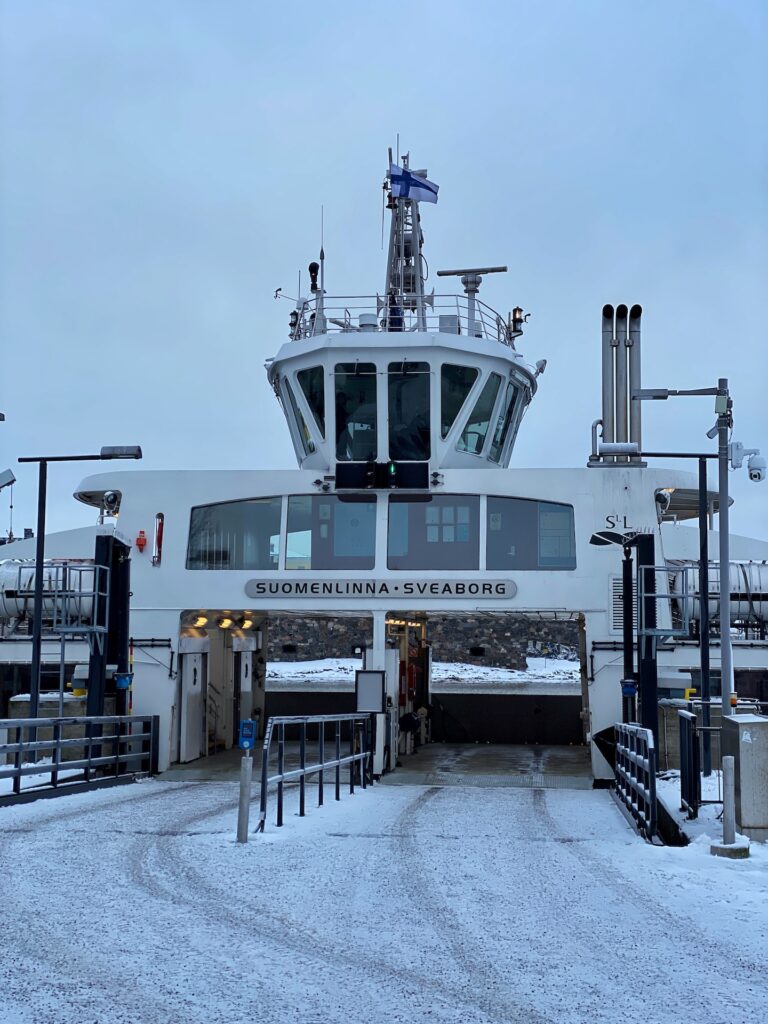
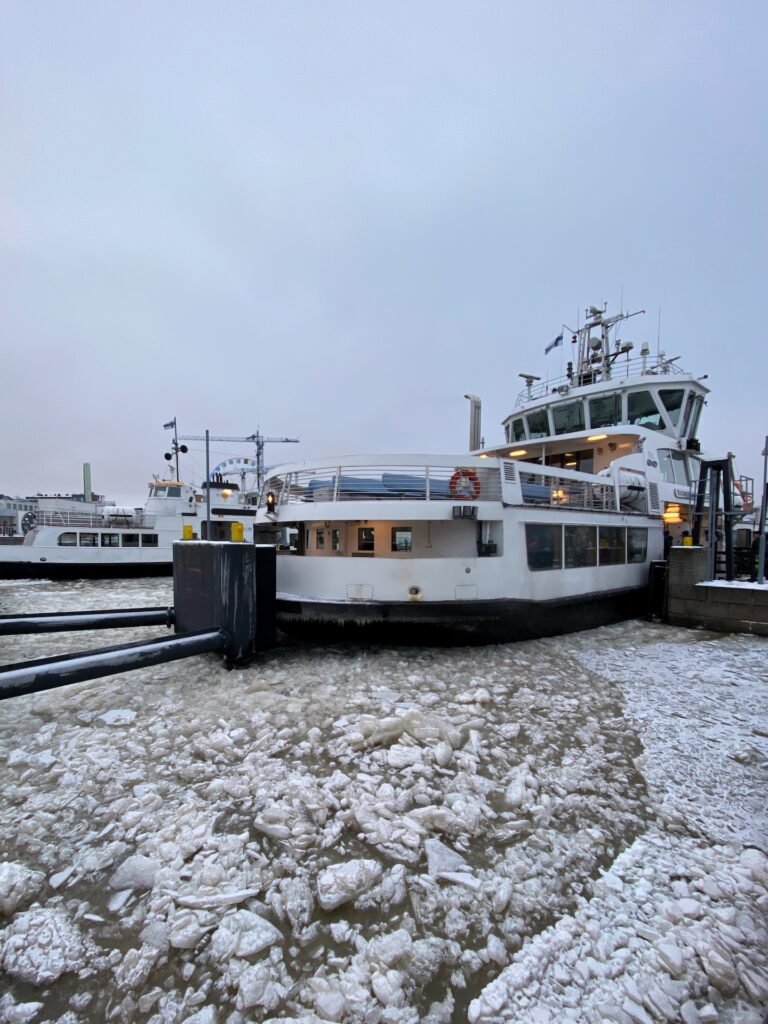
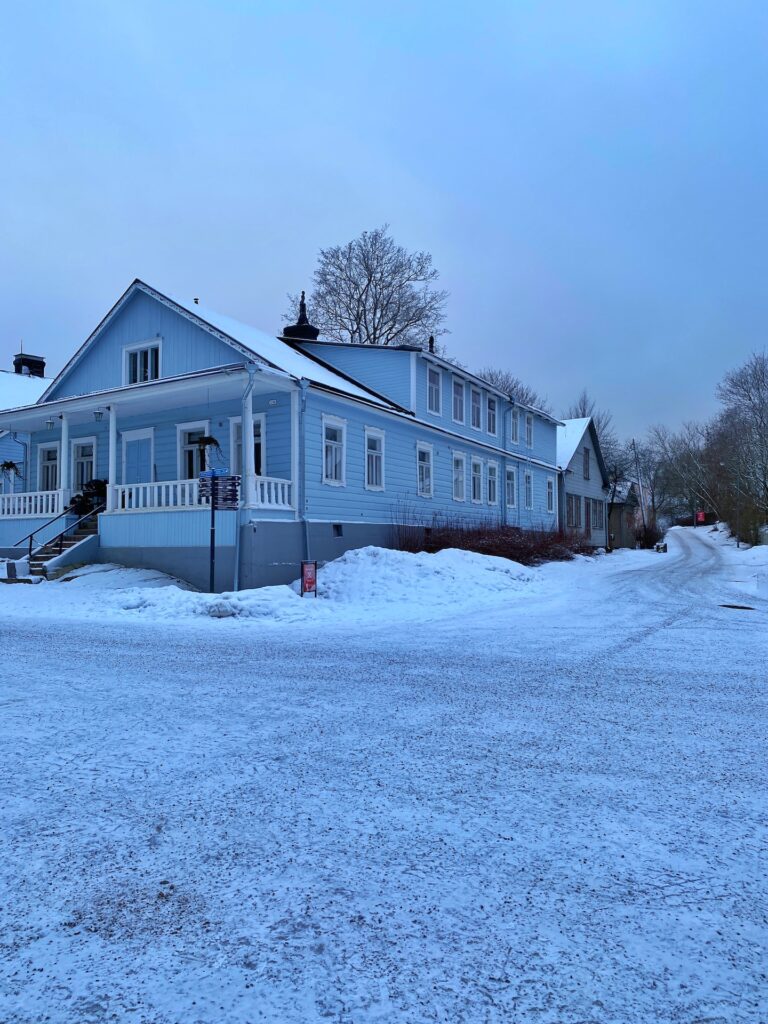

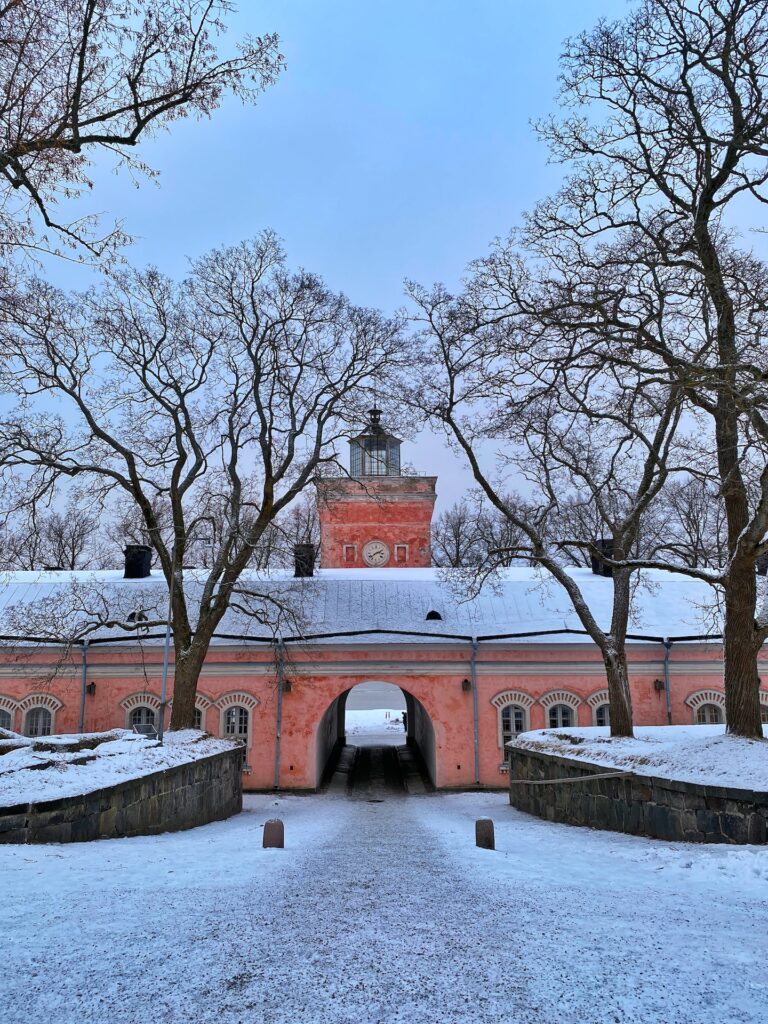
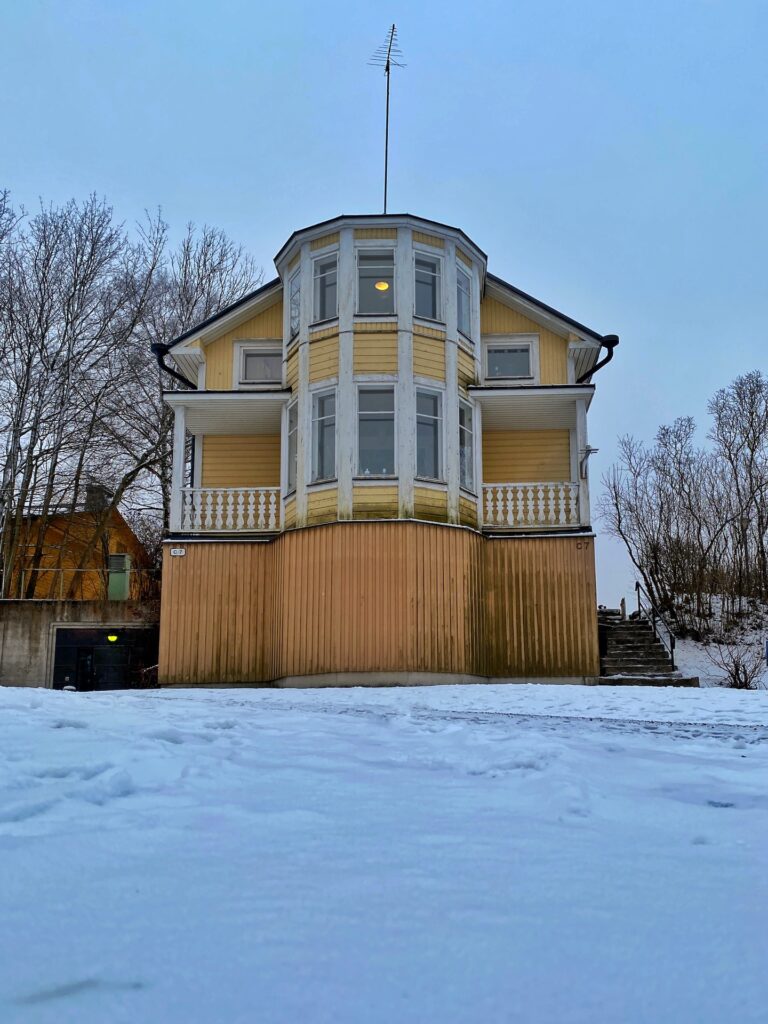

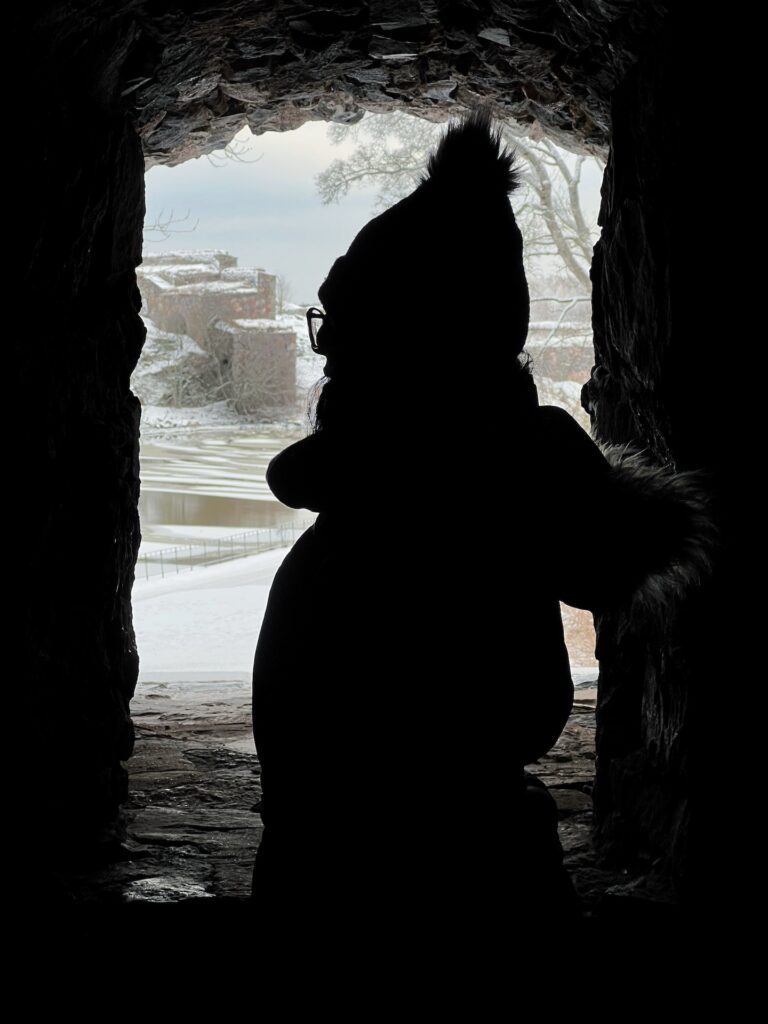
The perfect place to learn about the island is the Suomenlinna Museum, where you can discover three centuries of naval history.
Journey from the 18th century to the present day and learn about the role the fortress played during the Swedish and Russian eras of Finland, as well as the country’s independence. You will discover more about the civil war and how it affected the lives of the people who once called Suomenlinna home.

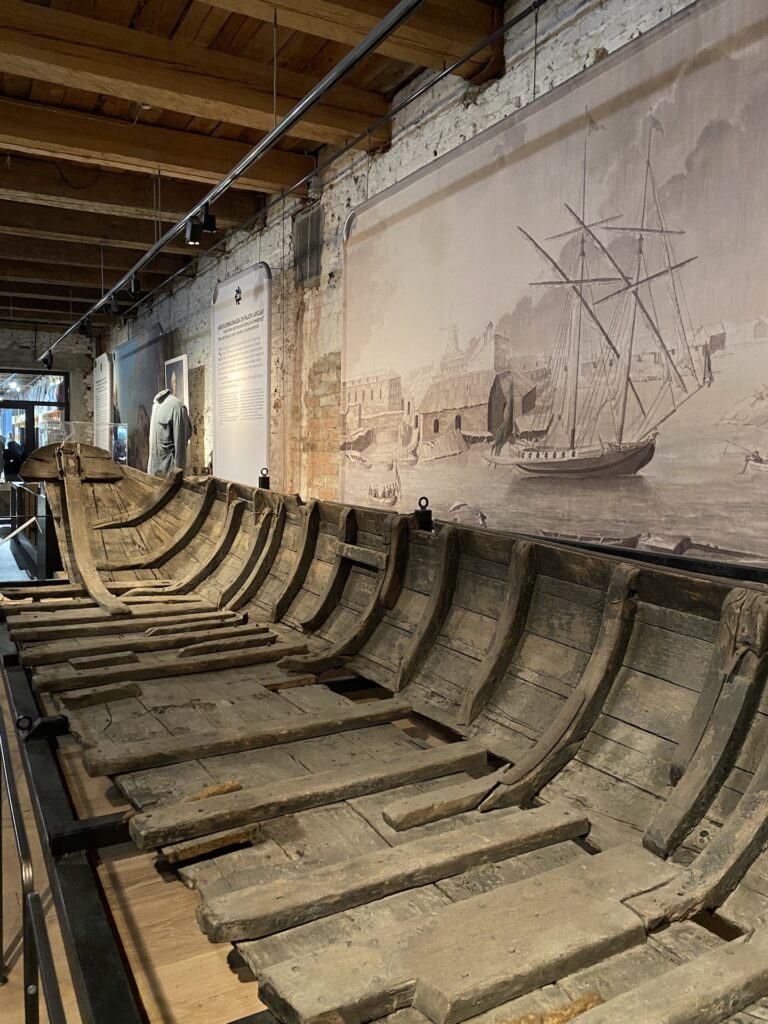
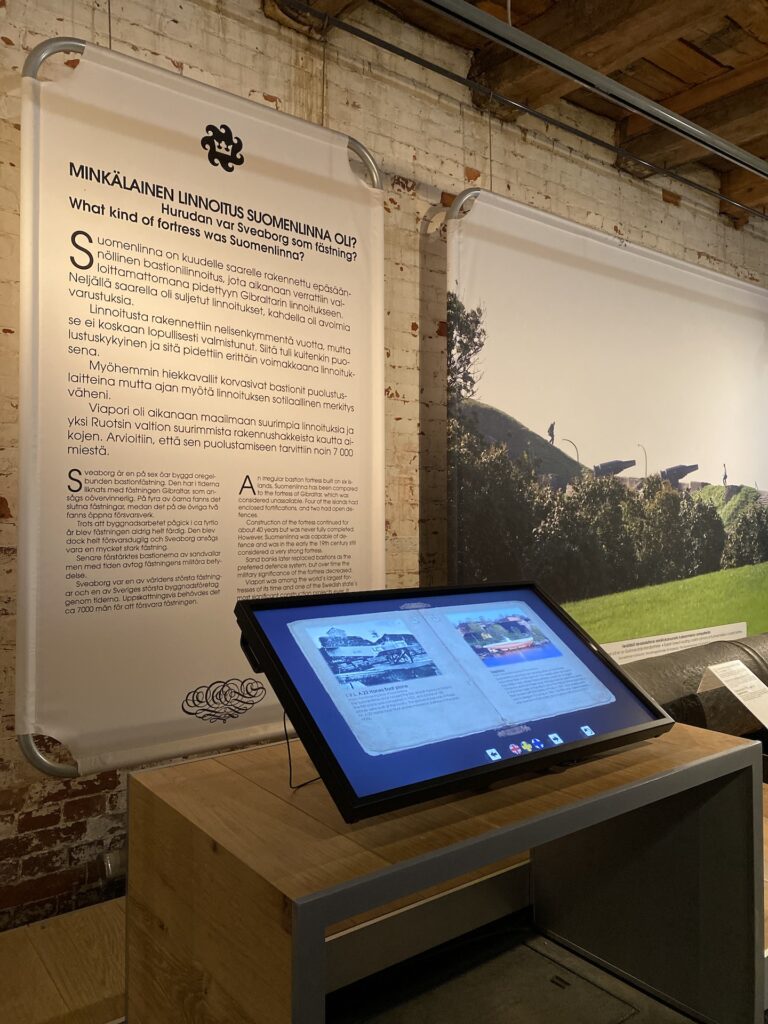
Helsinki has been a UNESCO City of Design since 2014. The Design Museum was created as a tribute to a century of Finland’s independence. It displays thousands of unique Finnish artifacts, drawings and photographs. It provides an interesting perspective about Finland’s route to independence, and features works by over 1,000 different designers.




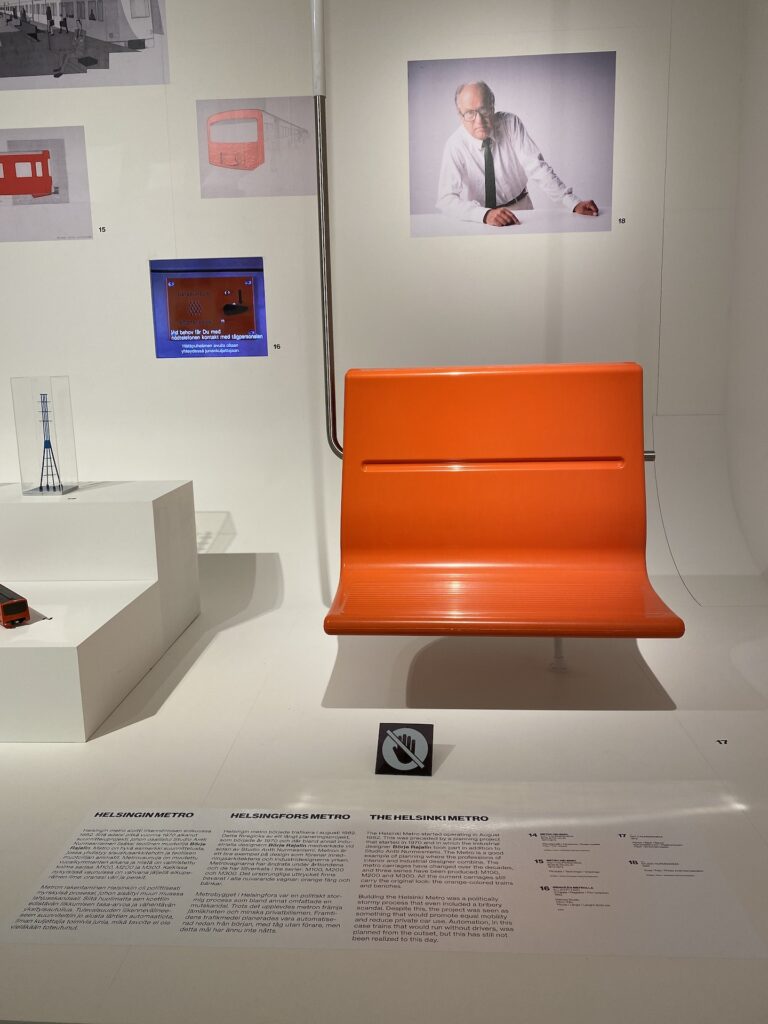

This museum provides a fascinating insight into Finnish architecture. It is home to a collection of 80,000 black-and-white photographs from the middle ages to the contemporary, 500,000 original drawings from the 20th century, as well as documents, and models, taking you on a journey through decades of Finnish architectural design and the prominent role women have played in this movement.


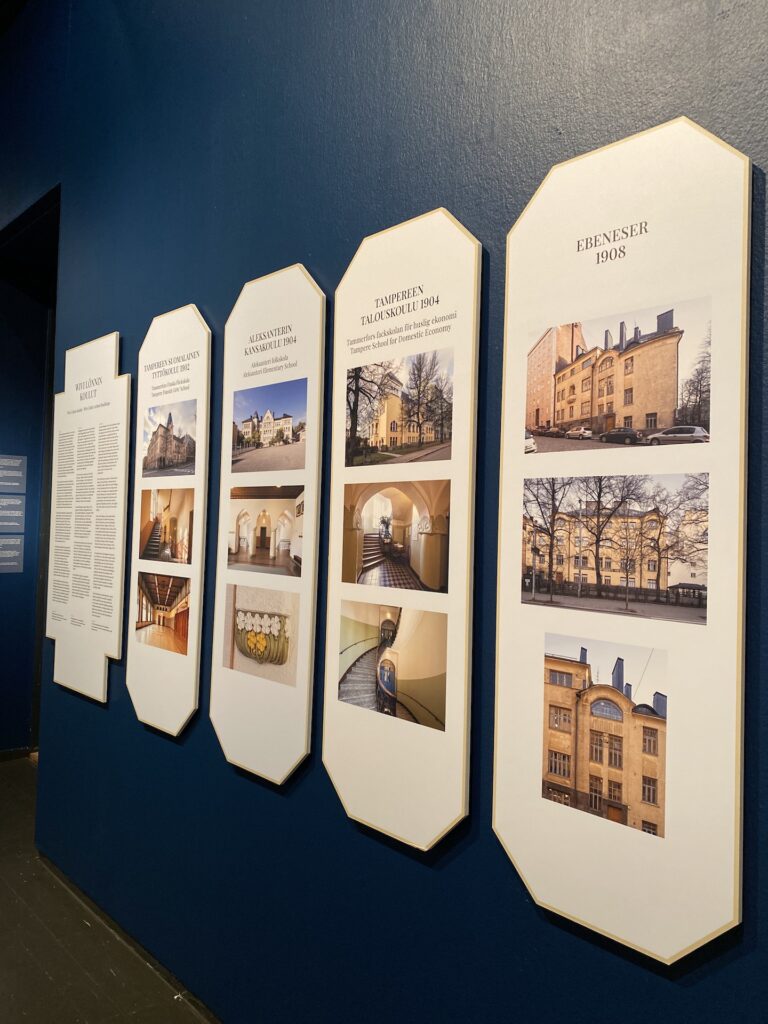
Aleksanterinkatu is a street in Kluuvi, the commercial centre of Helsinki. Helsinki’s famous green trams ride through this street regularly, so it’s a great place to come for some street photography.
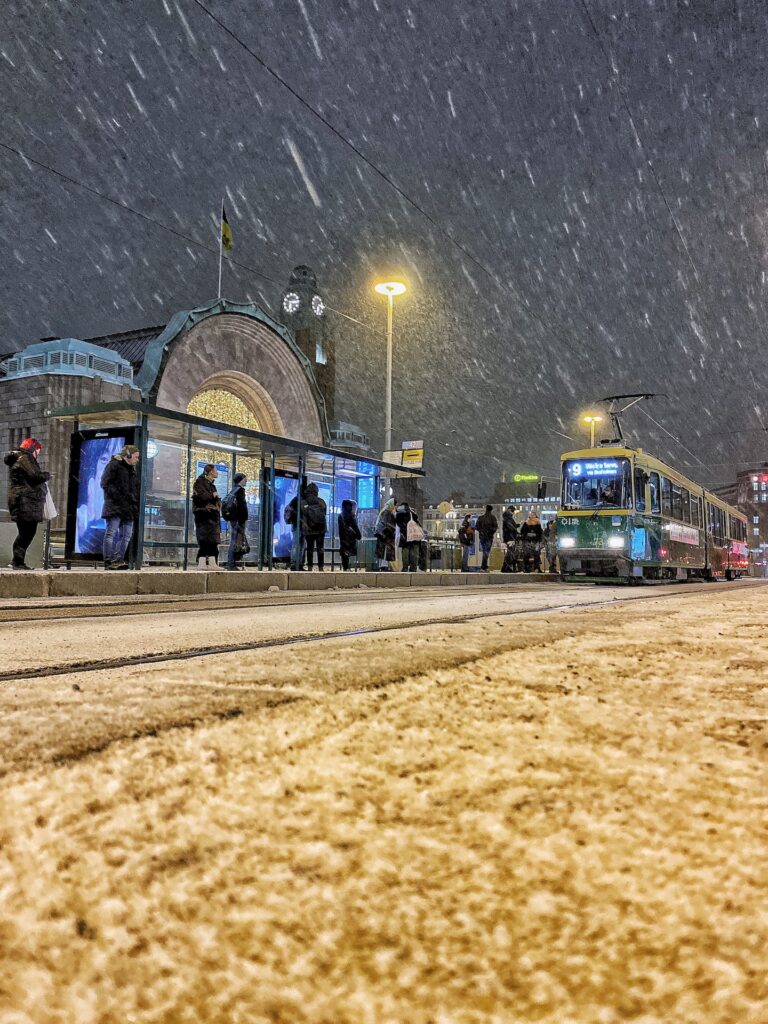
Oodi is Finland’s most impressive library and is a true architectural masterpiece. It was built for the 100th year anniversary of Finnish independence. The library uses a bridge structure to create an open street level and floating book heaven on the top floor. It has an impressive staircase, roof terrace and a café.
For more, check out this Helsinki architecture walking tour with an expert guide.

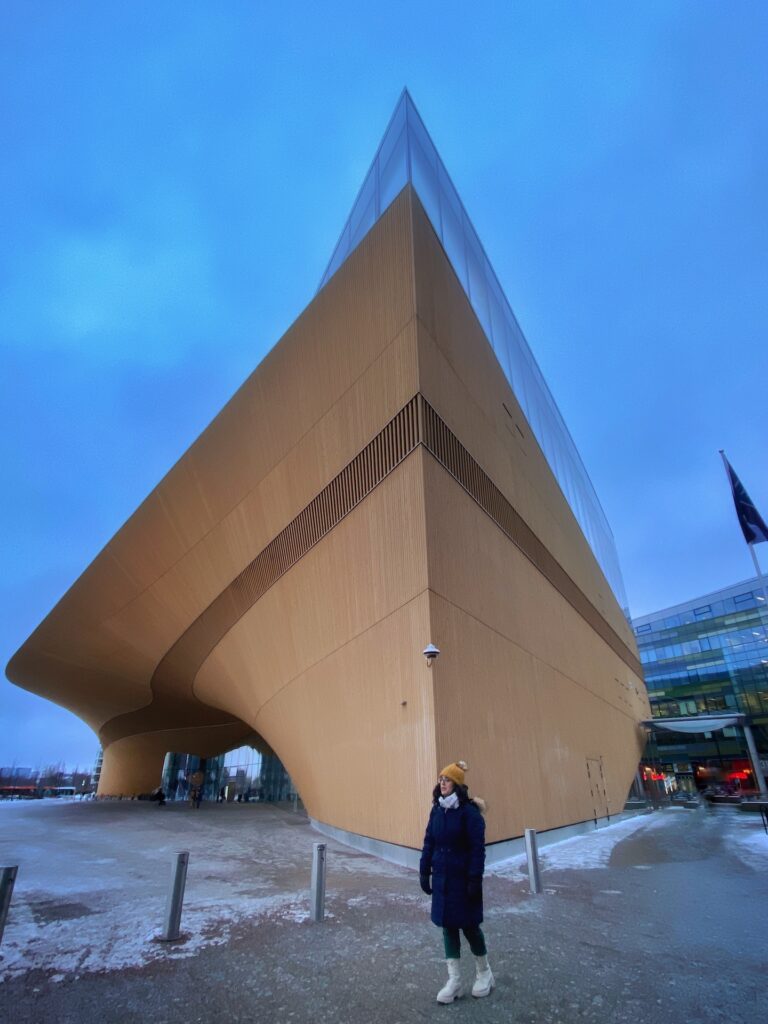

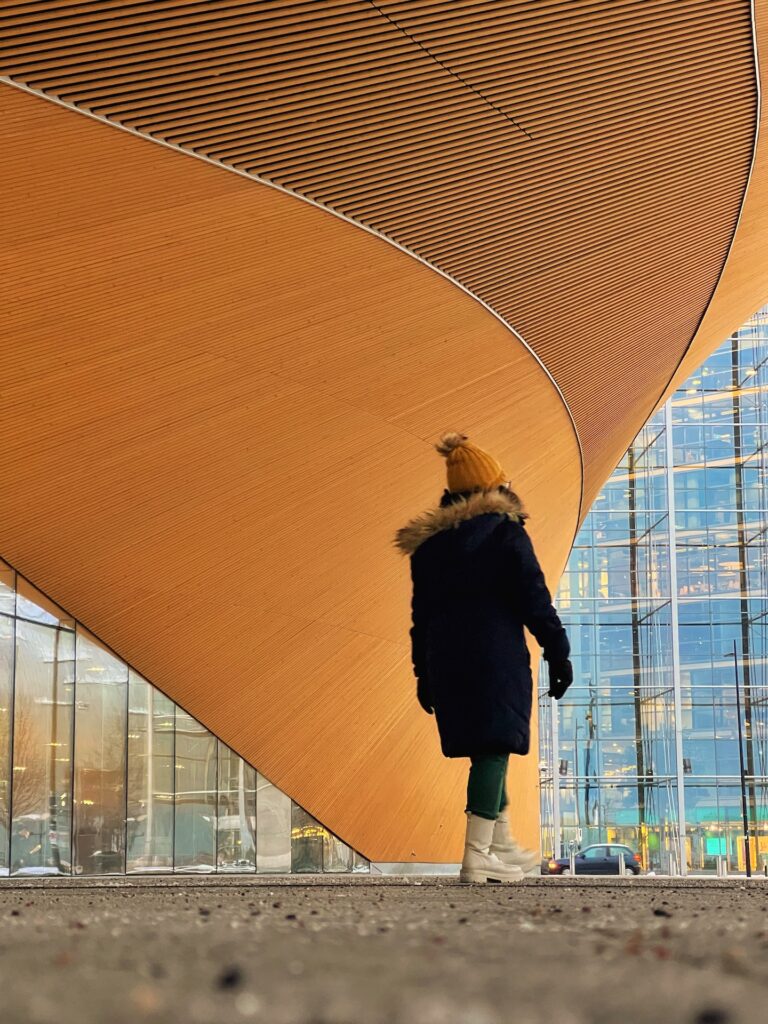
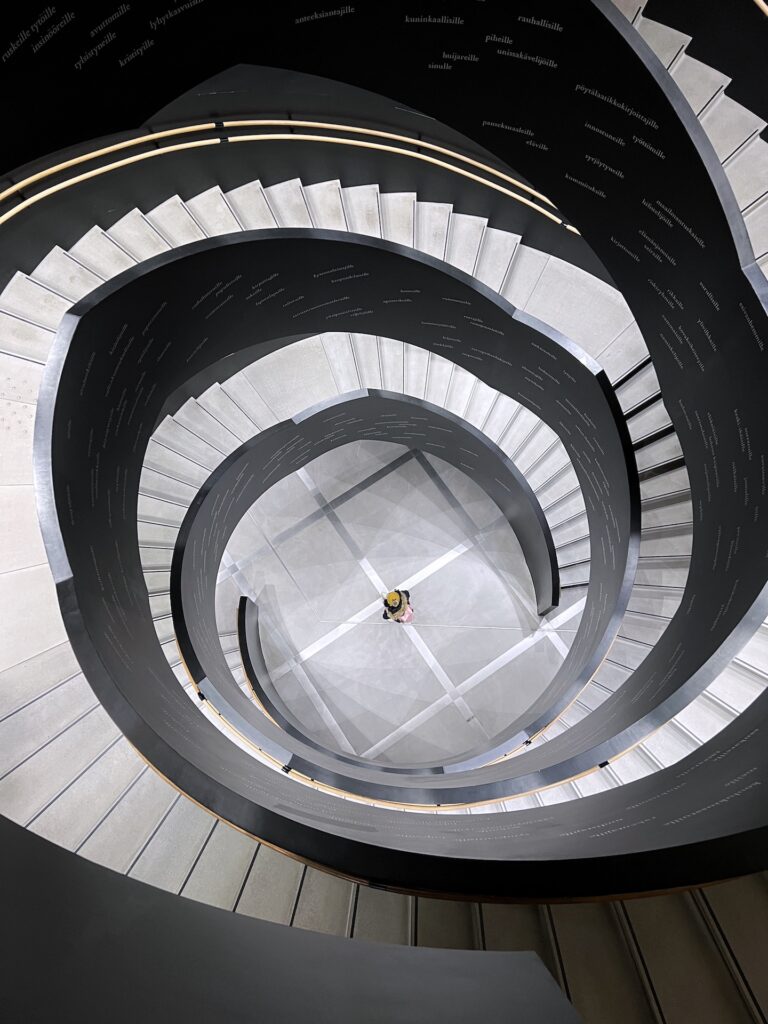

Amos Rex is an art museum where the past, present and future merge into one. It’s located within the functionalist landmark of Lasipalatsi in central Helsinki, and presents exhibitions by contemporary artists and their modernist predecessors.
Have you ever spent time on top of a museum? At Amos Rex you can walk, climb and even have a picnic on the domes that form the roof over Amos Rex’s exhibitions. You can even peek inside the museum through the roof windows.
Hans Op de Beeck is currently doing his first solo show in Finland, with the exhibition ‘The Quiet Parade’. Visitors encounter a monochromatic world, with the art depicting life’s ups and downs.
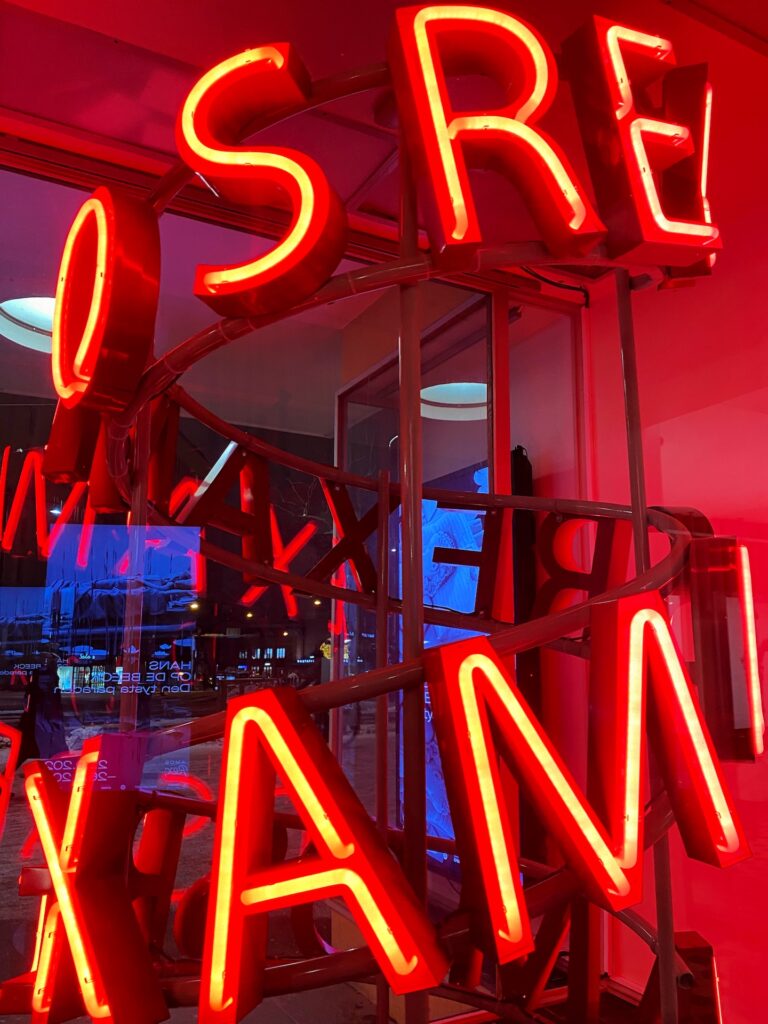
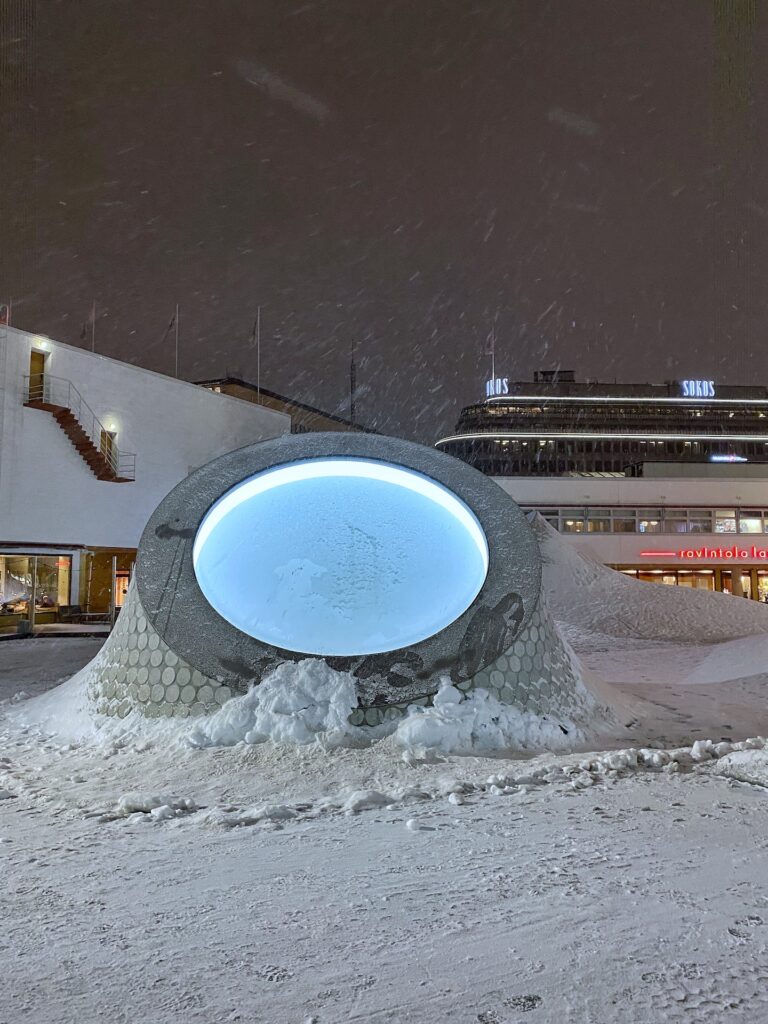


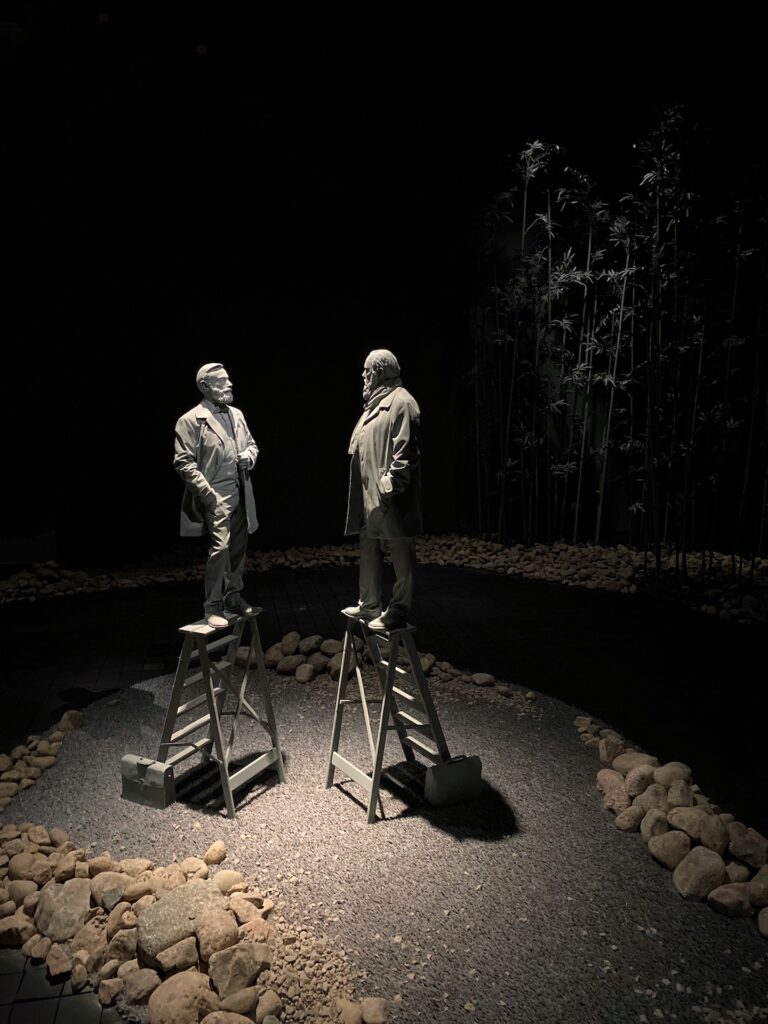
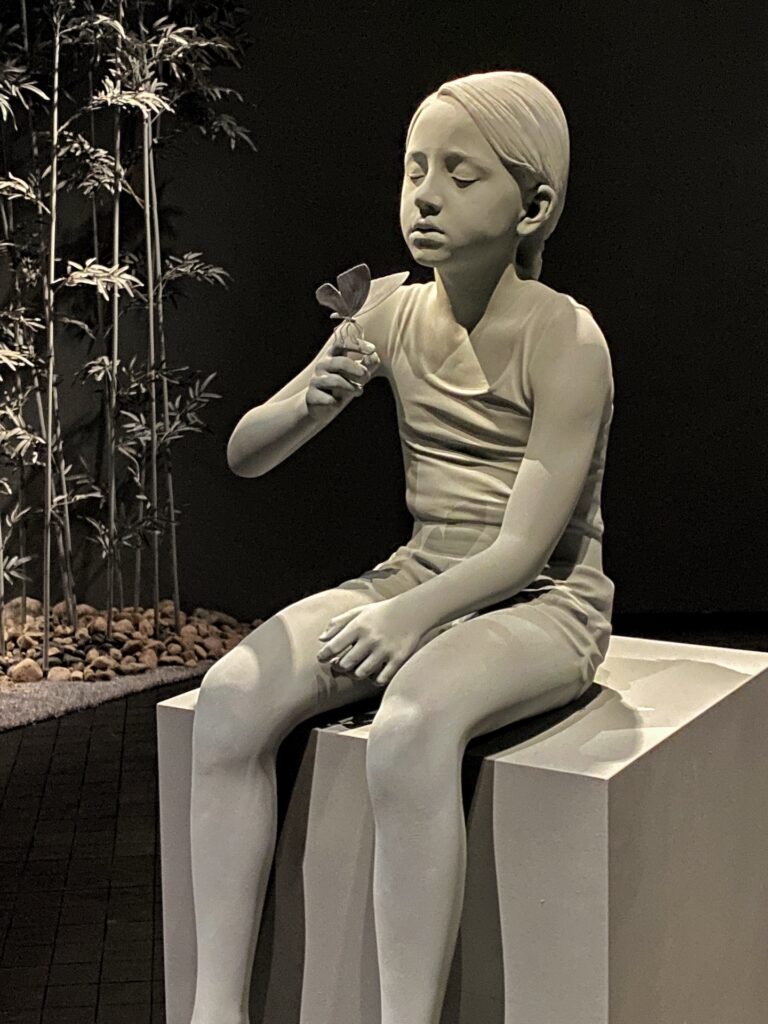
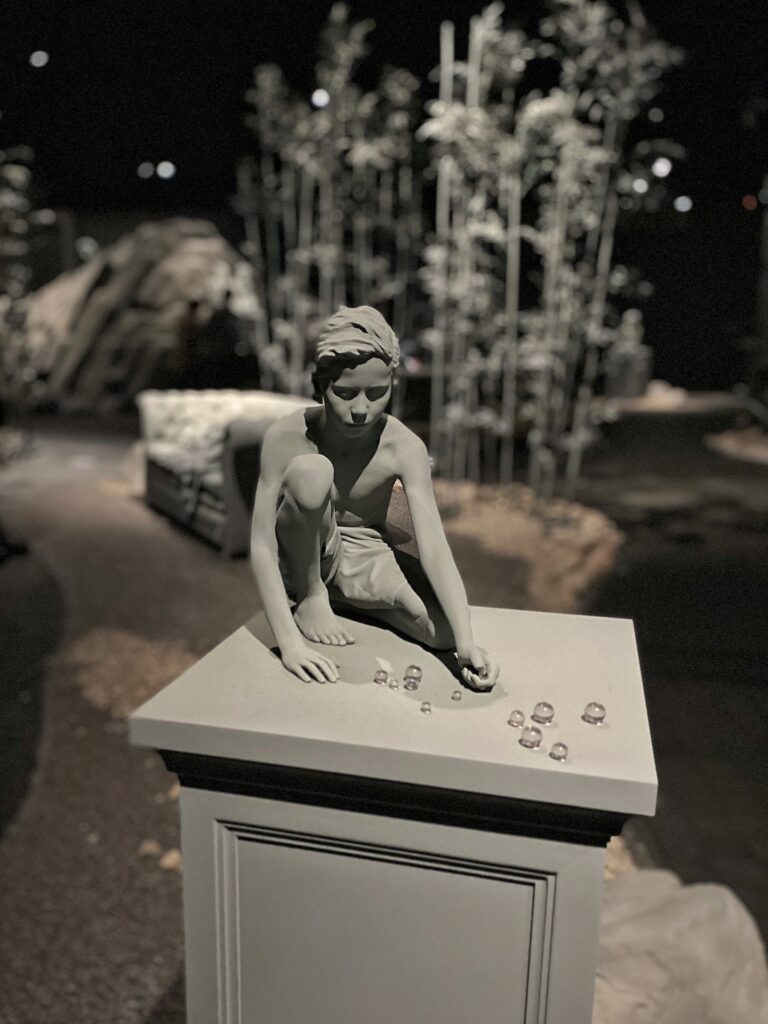
Temppeliaukion Church, or Rock Church, is an architectural gem in the heart of Helsinki – the church is quarried into the country’s natural bed rock. The church hall is covered with a dome, lined with copper and supported on the rock walls by reinforced concrete beams. This is also a highly popular concert venue!

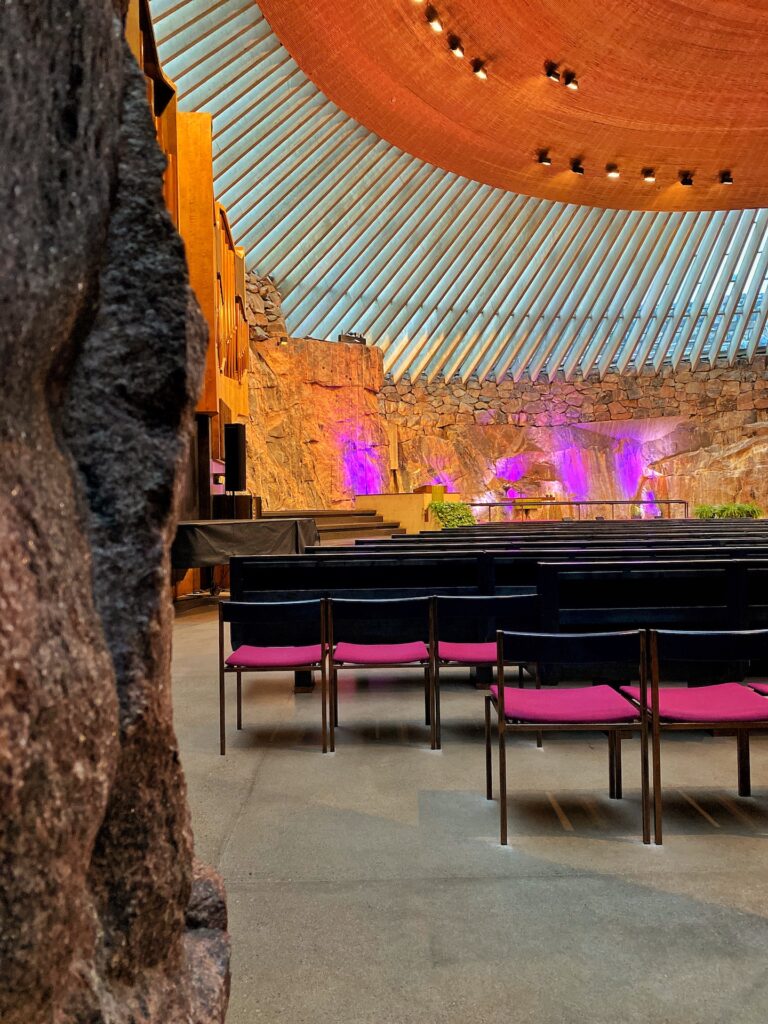
Helsinki Central Station is considered to be one of the most beautiful train stations in the world. Be sure to stop and admire the station’s fascinating architecture, as you pass through the city…
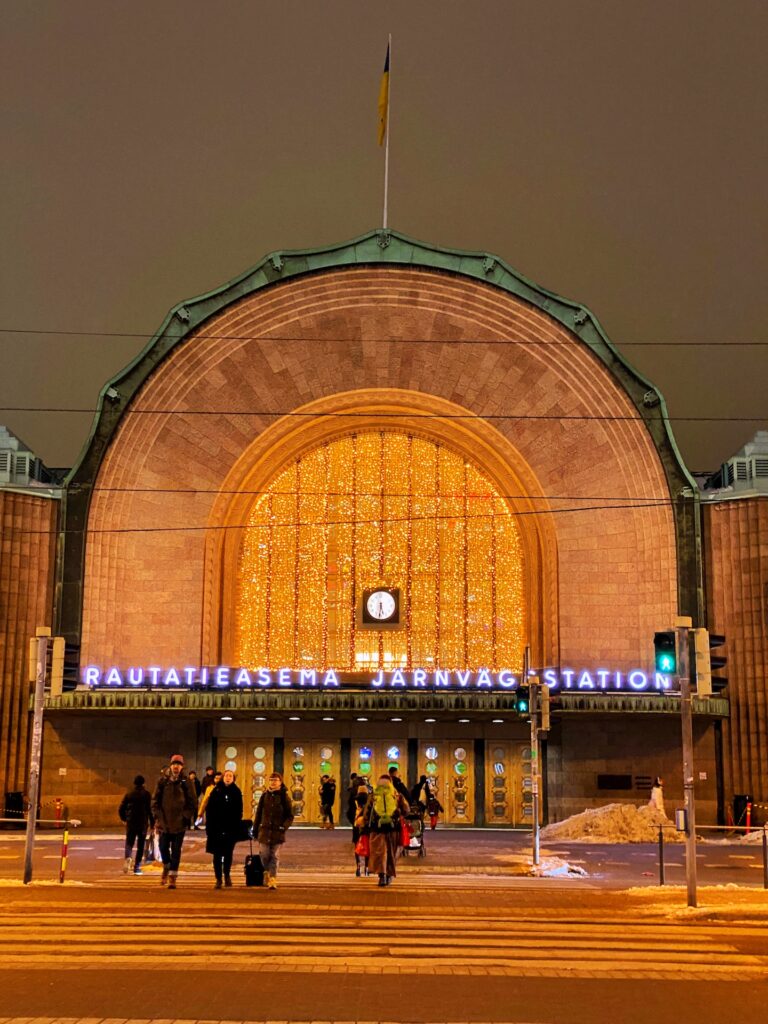
Uspenski Cathedral is another iconic landmark in the Finnish capital, with a red-bricked exterior. It is located on a hilly terrain, near to the sea, and is the largest Orthodox Cathedral in Western Europe.
You can also discover all the sights of Helsinki at your own pace on the hop-on and hop-off sightseeing bus.
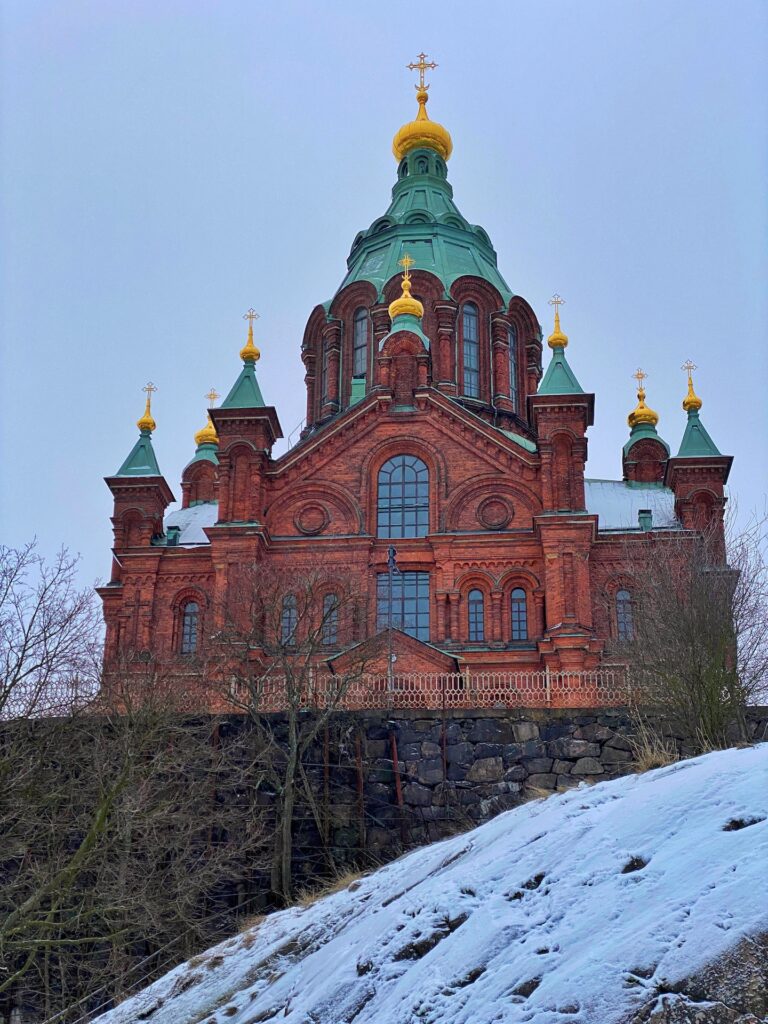
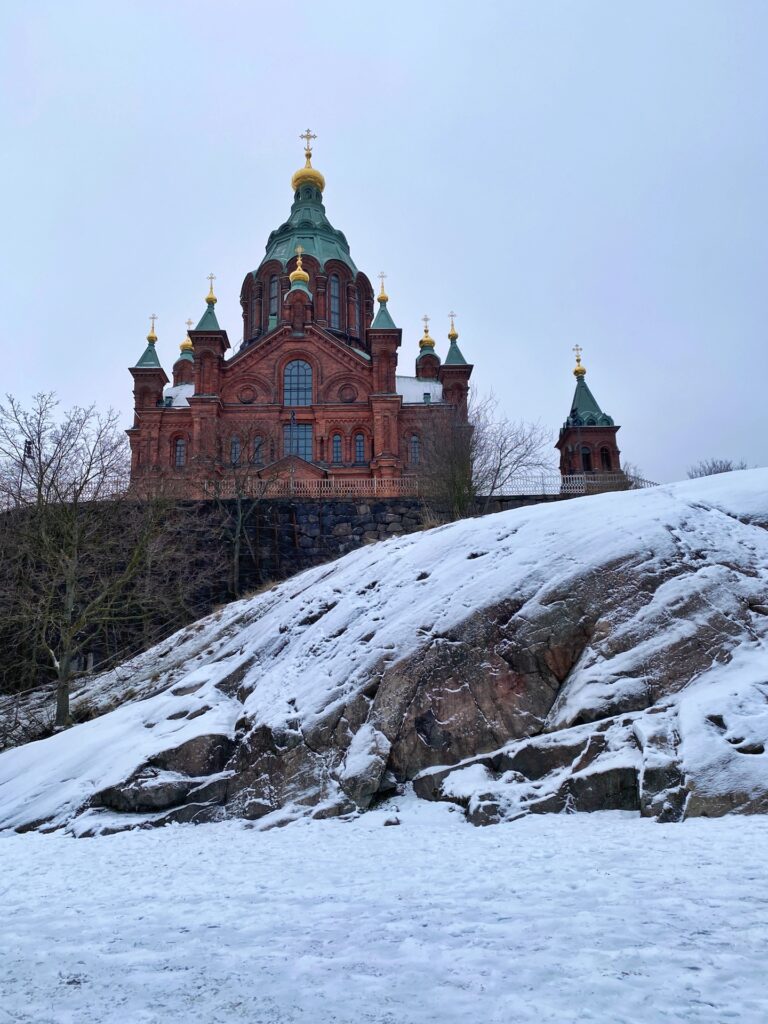
Johanneksenkirkko, also known as St.John’s Church, is a Finnish neo-Gothic church in southern Helsinki. It was built between 1888 and 1891, and holds the title as Finland’s largest stone church. The architecture is fascinating and the two towers that form the church leave a prominent mark on the city’s skyline.
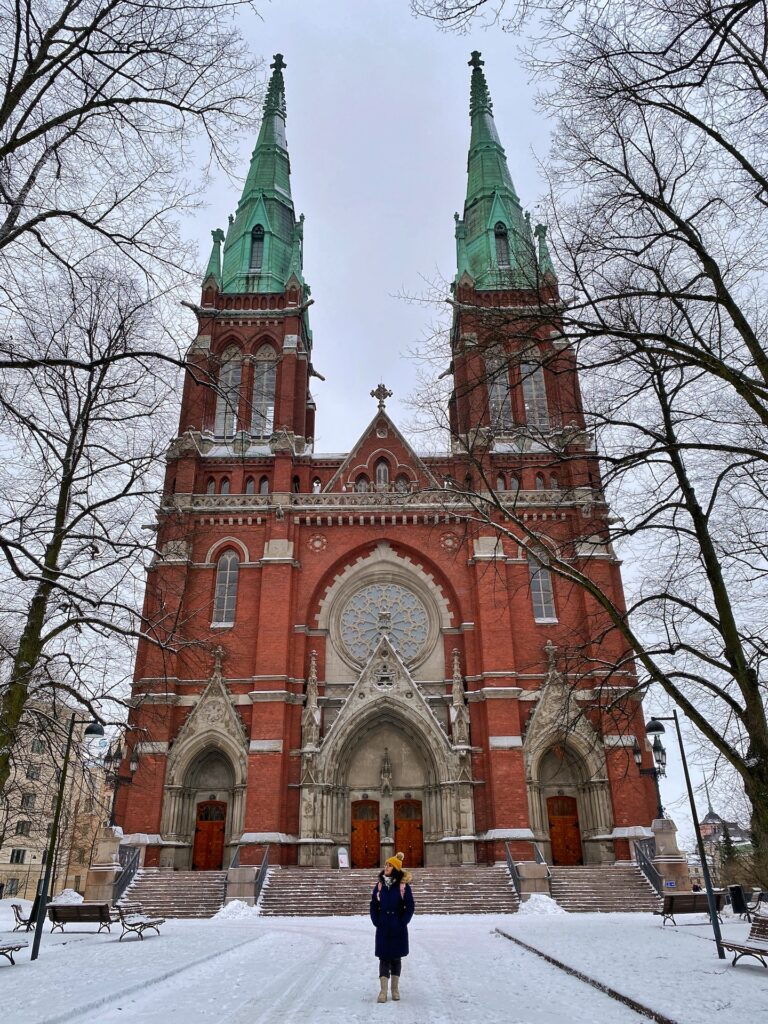
Observatory Hill Park was Helsinki’s first municipal park, which opened in the early 1900s. Located on a high hill, the park offers great views of the city and out towards the Baltic Sea.
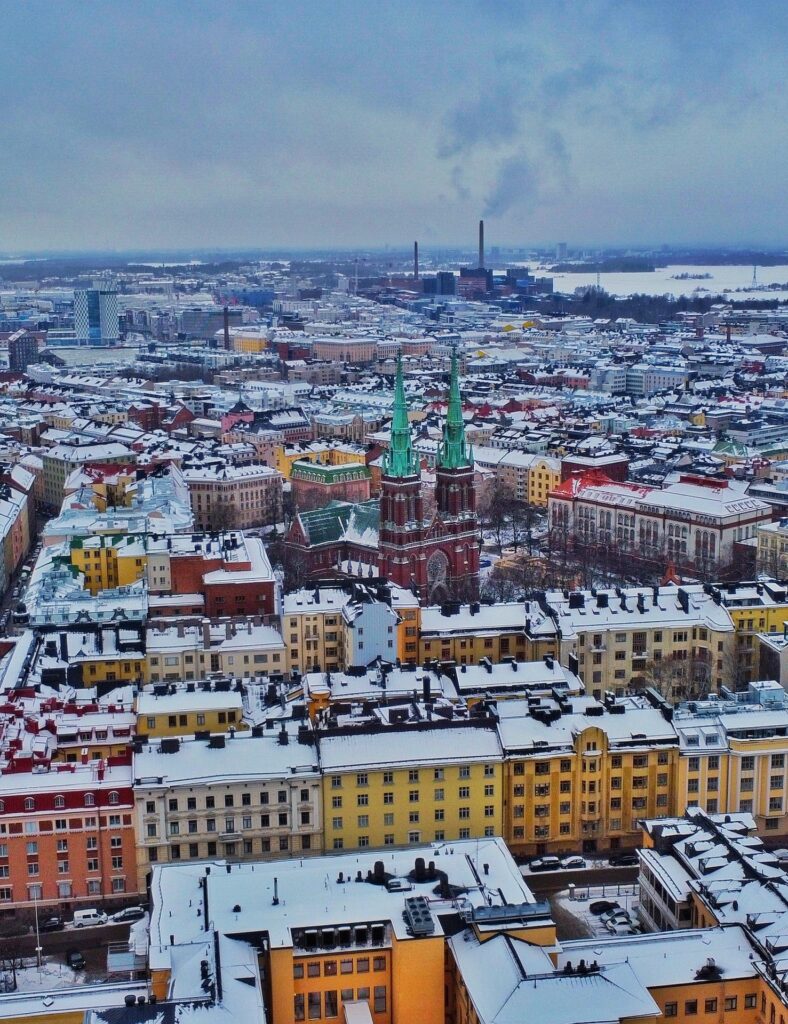
Leave a Reply